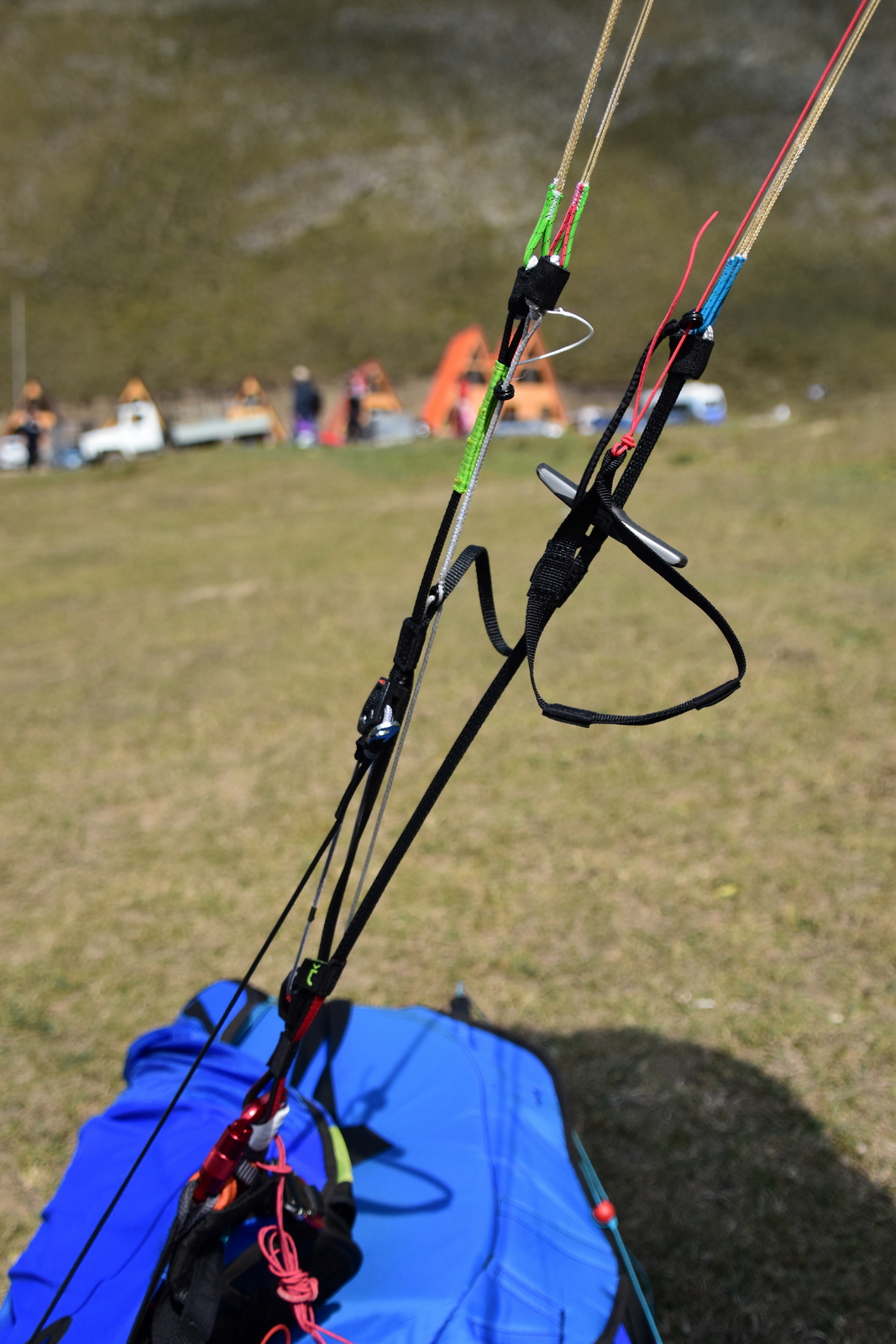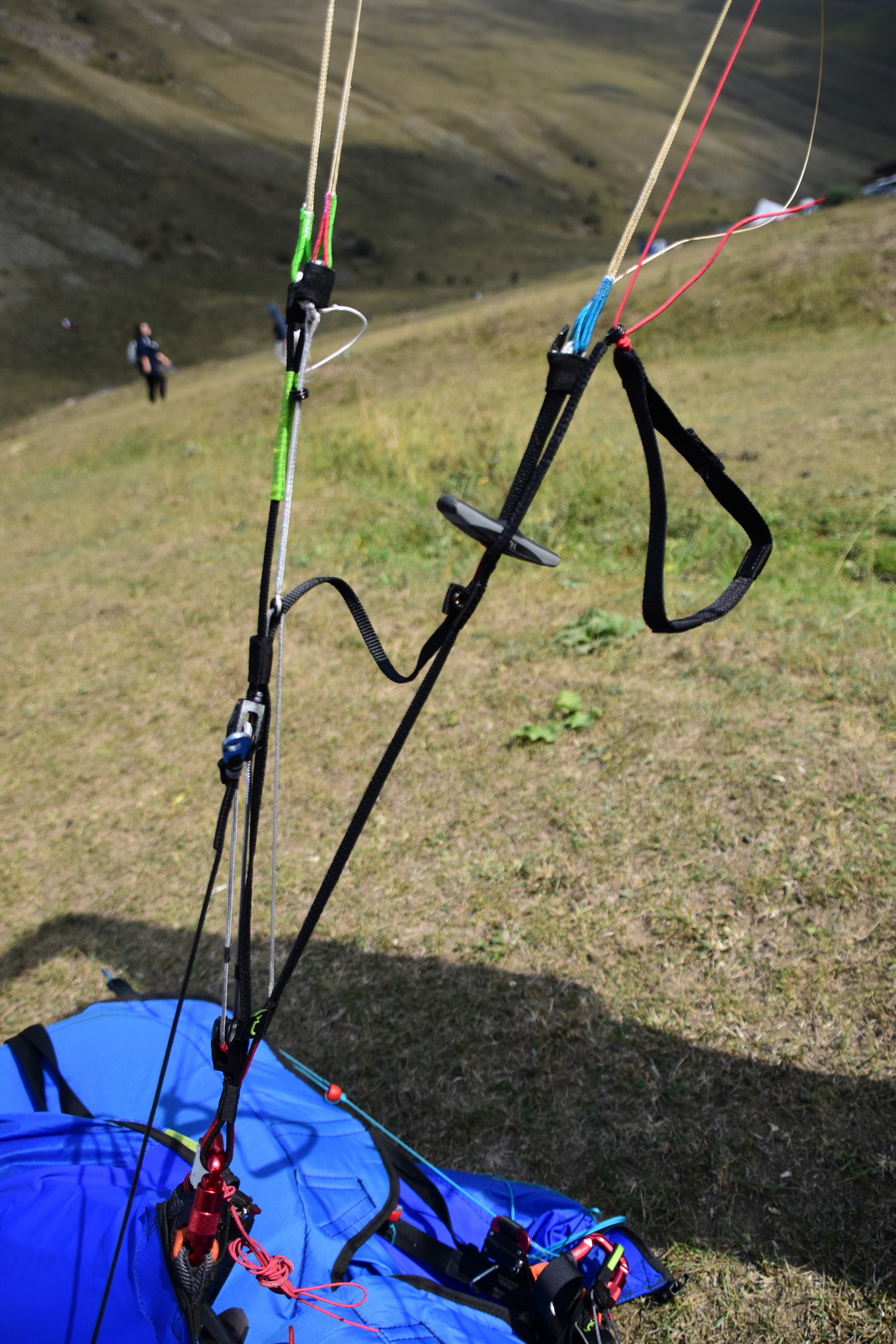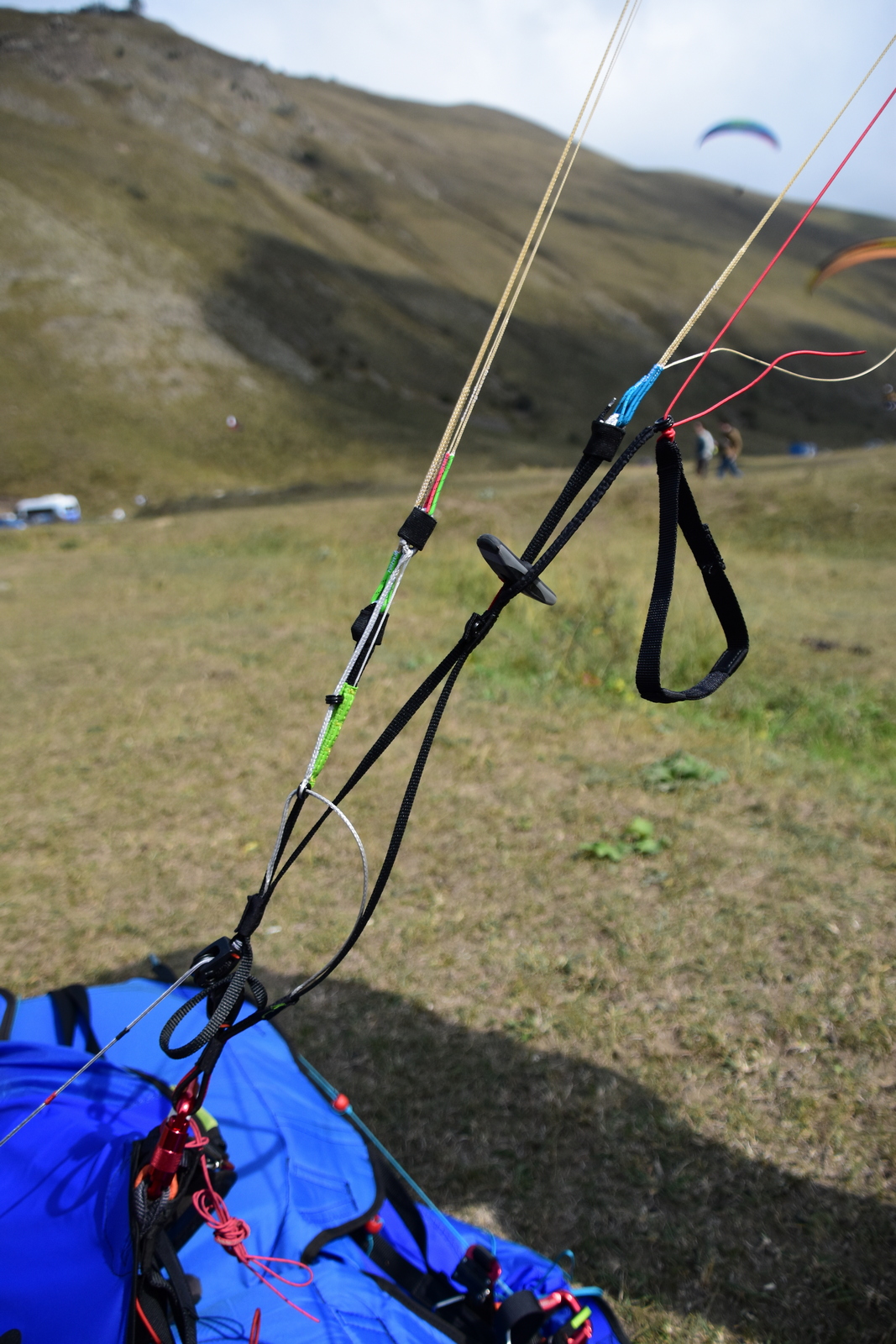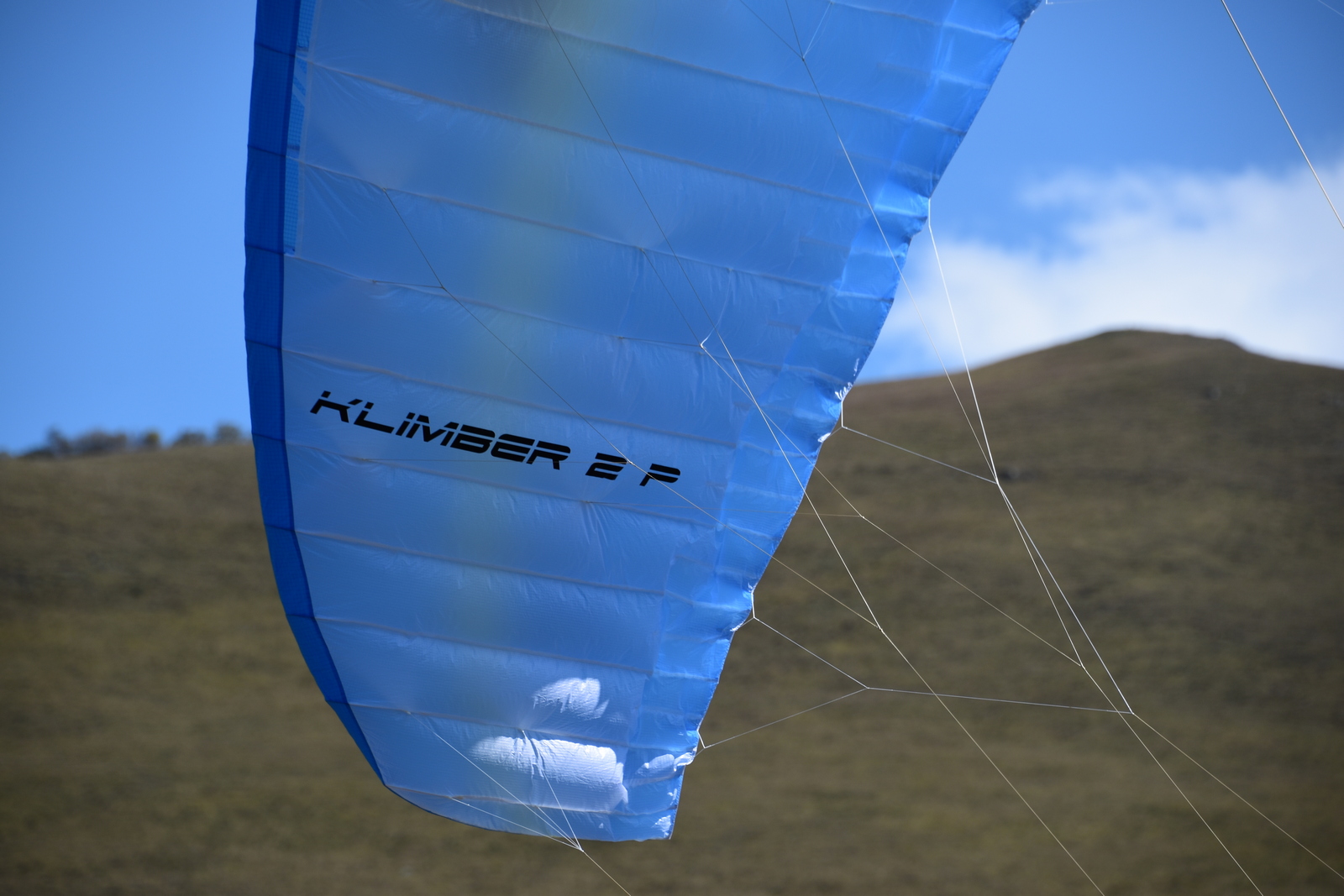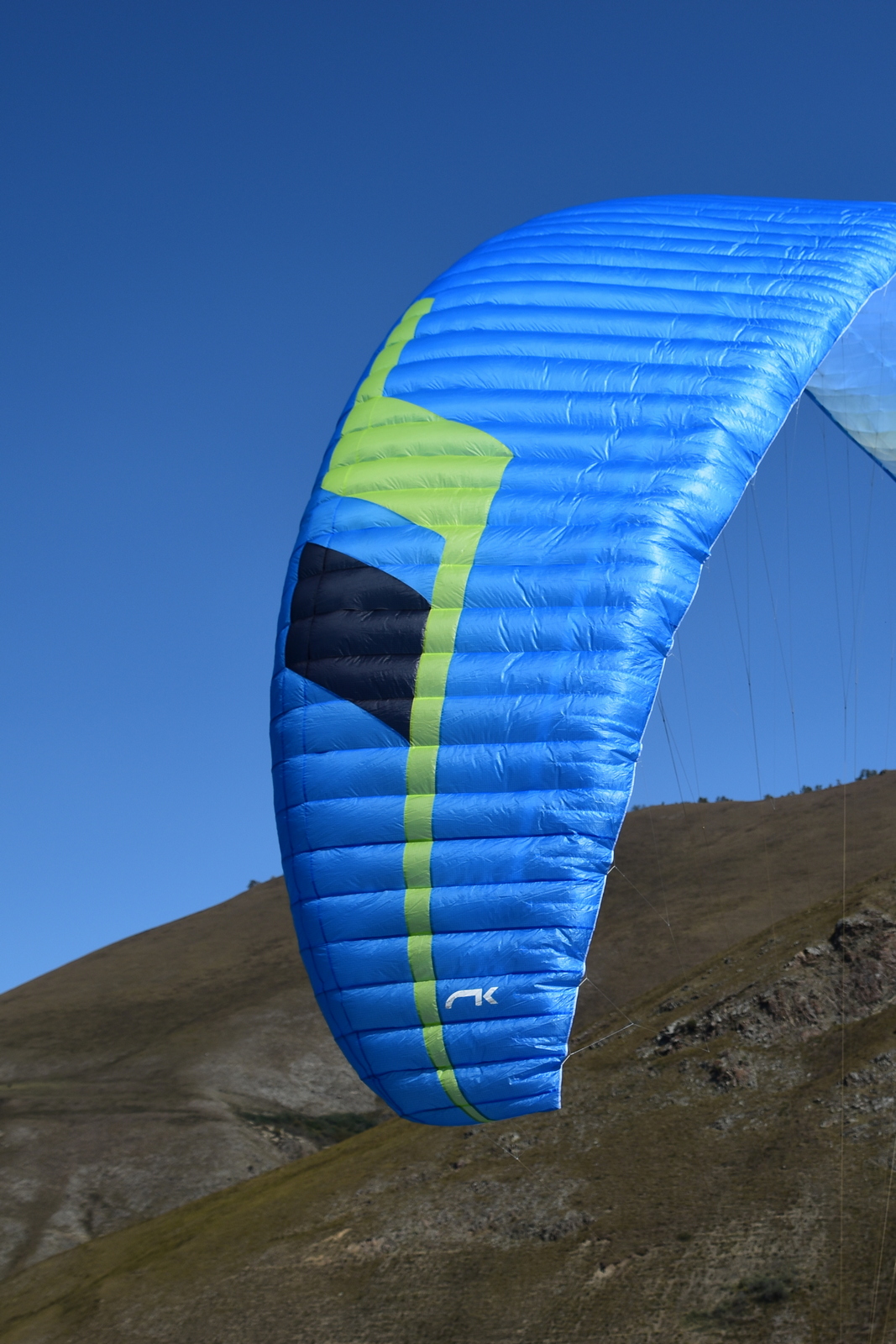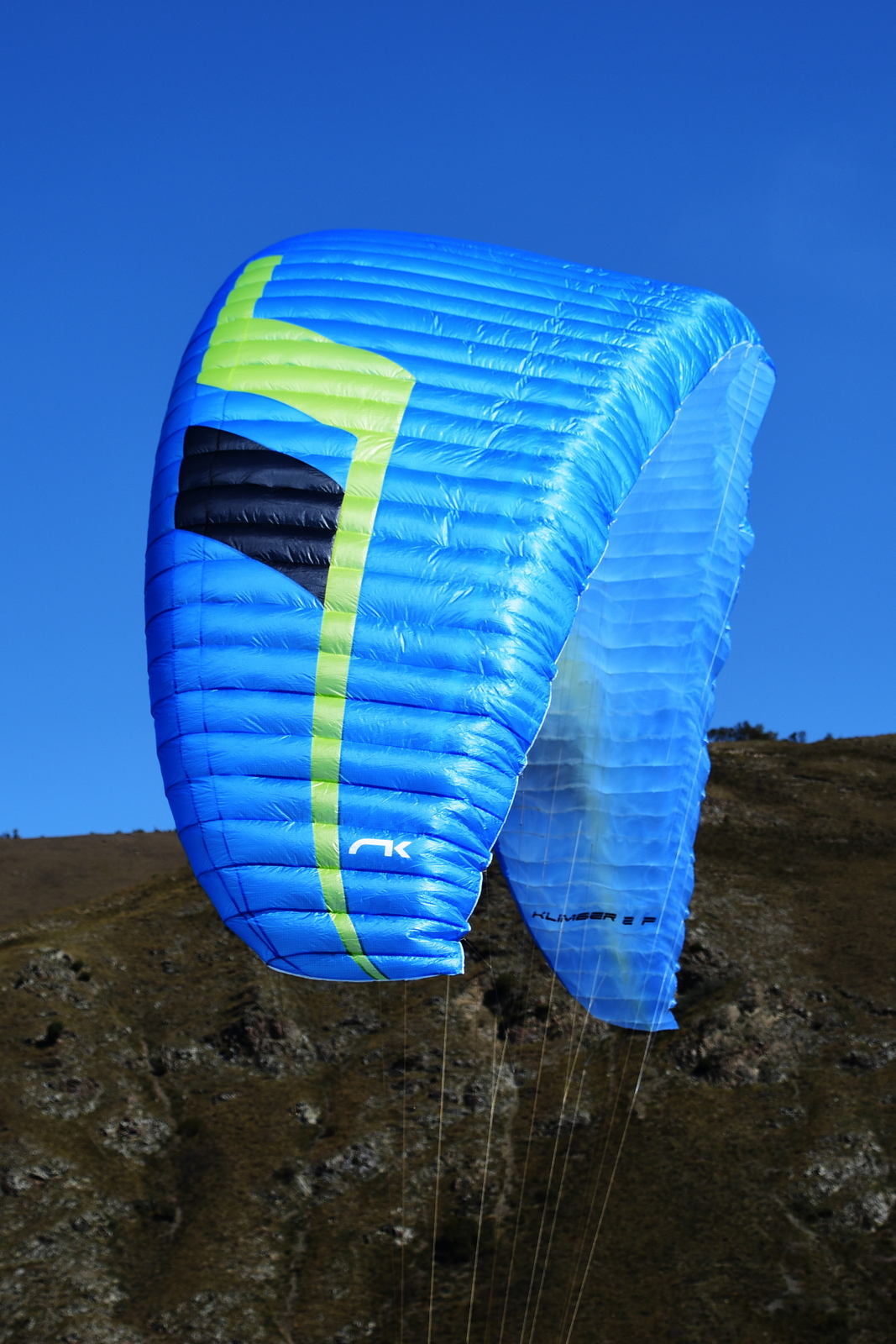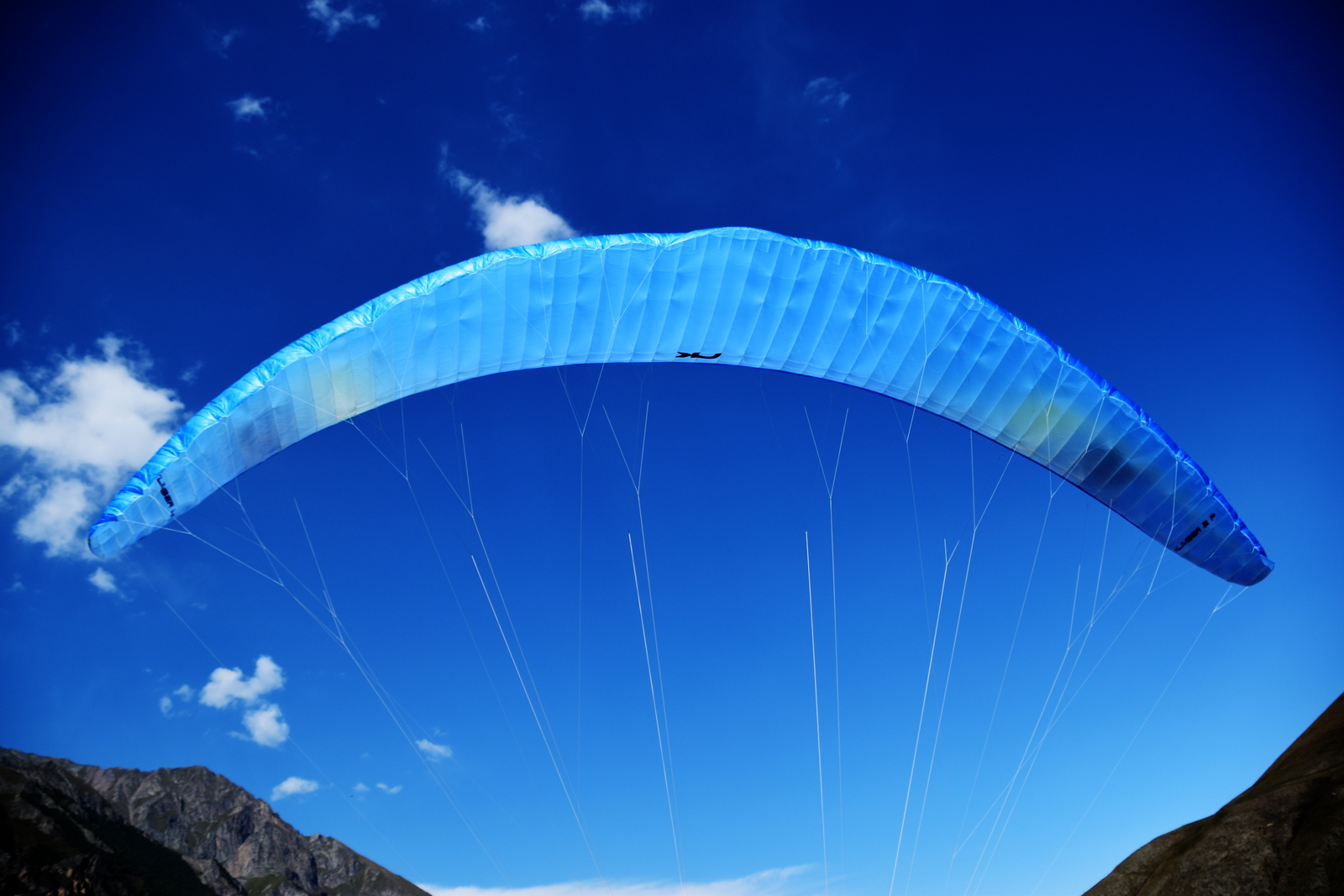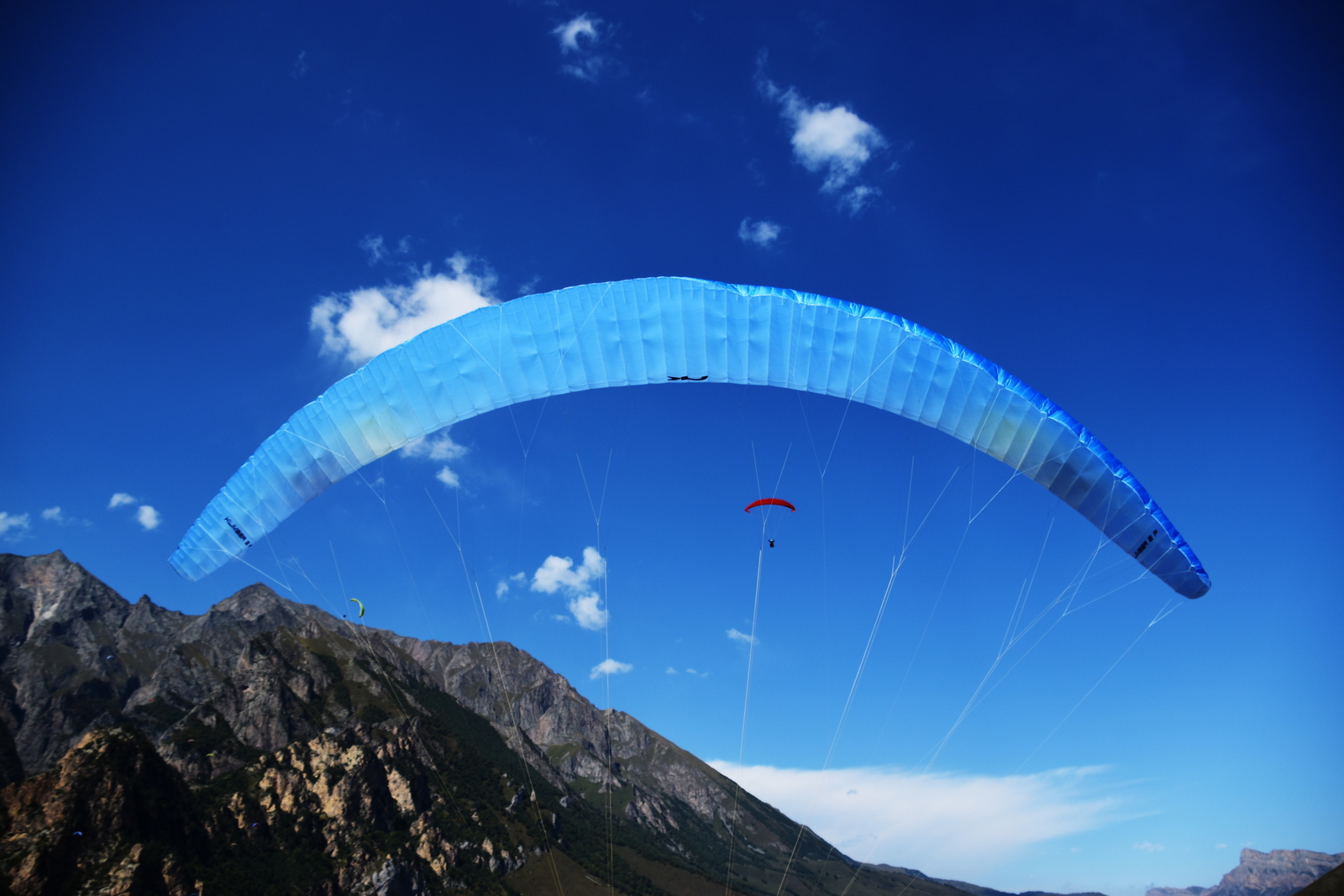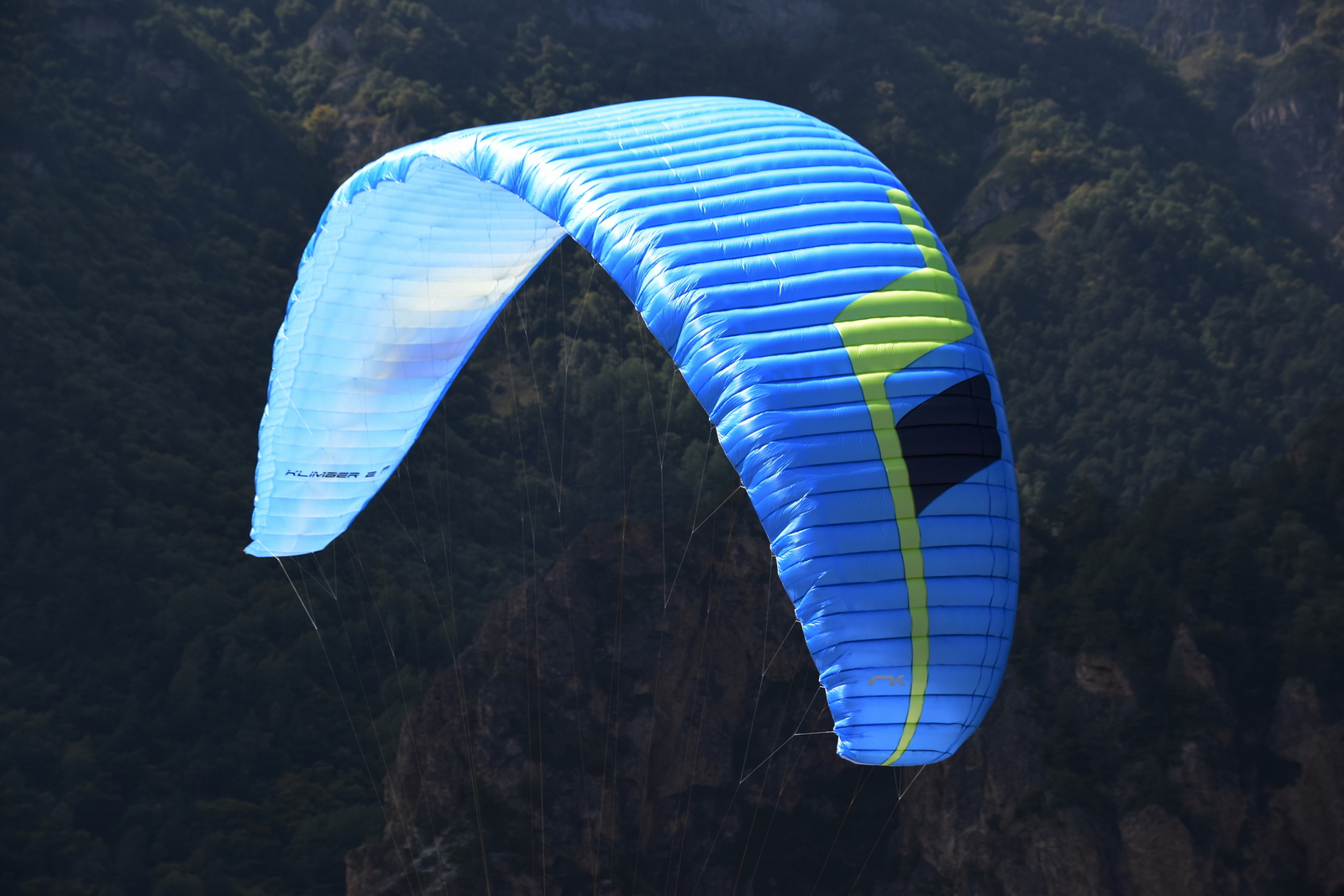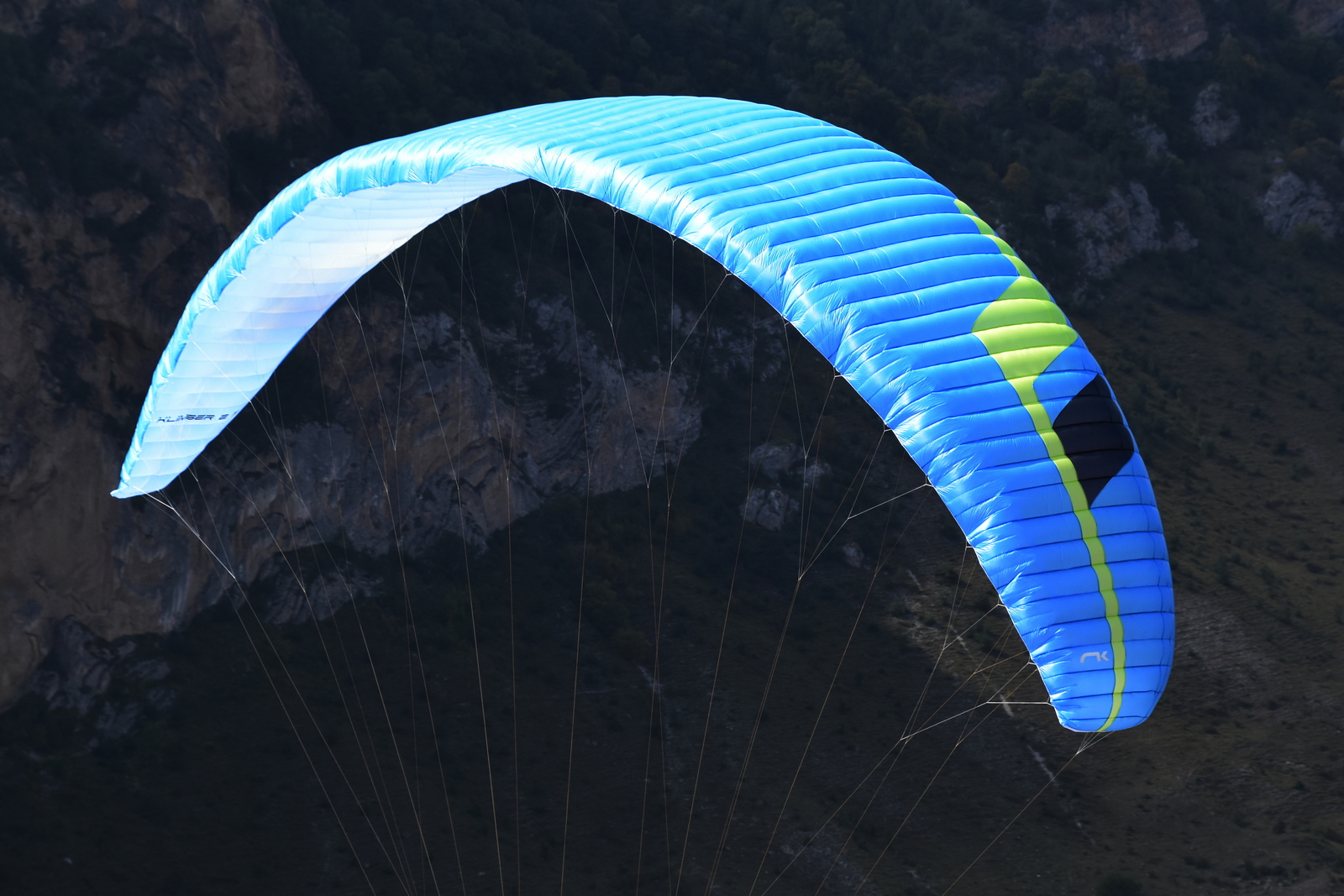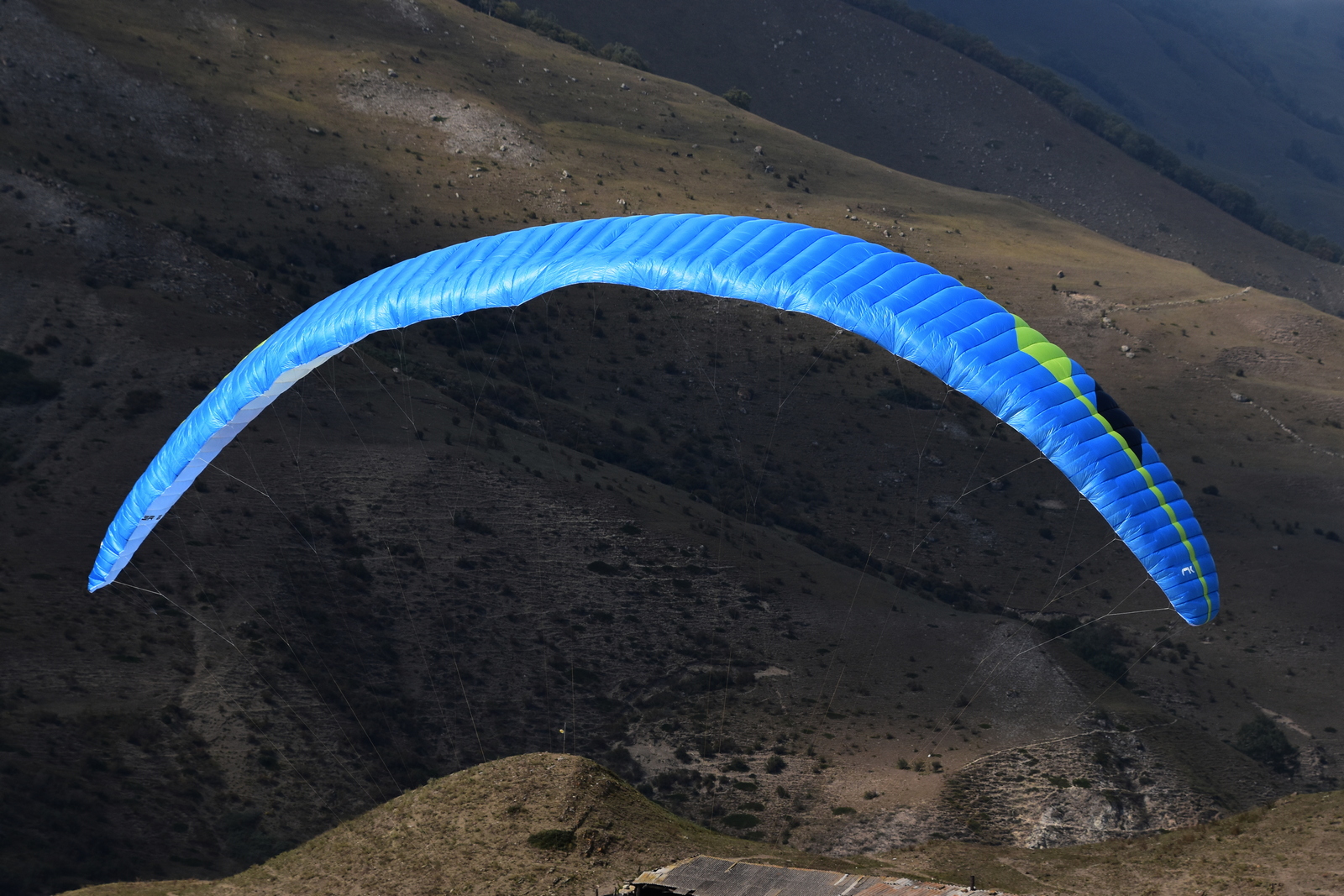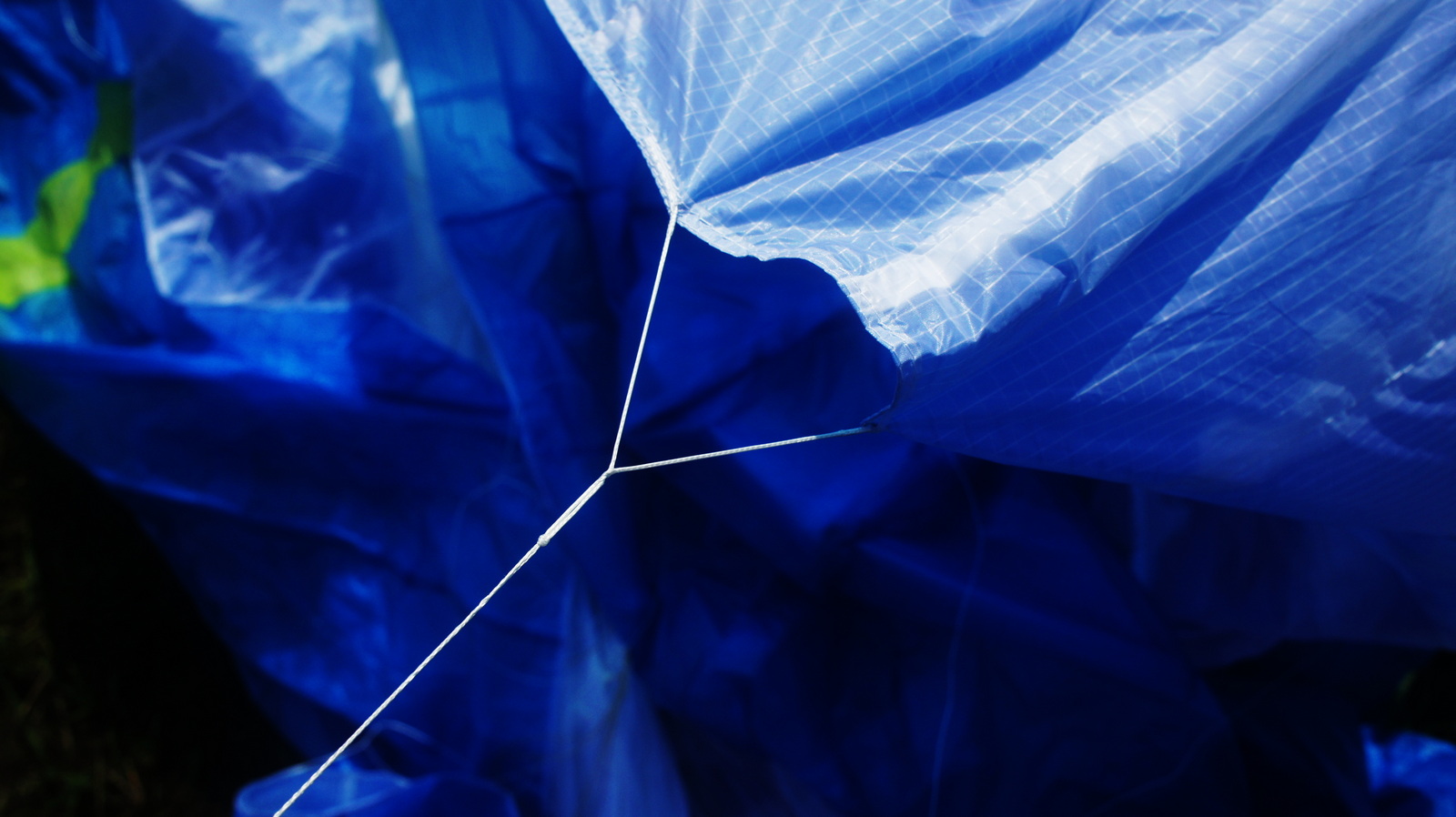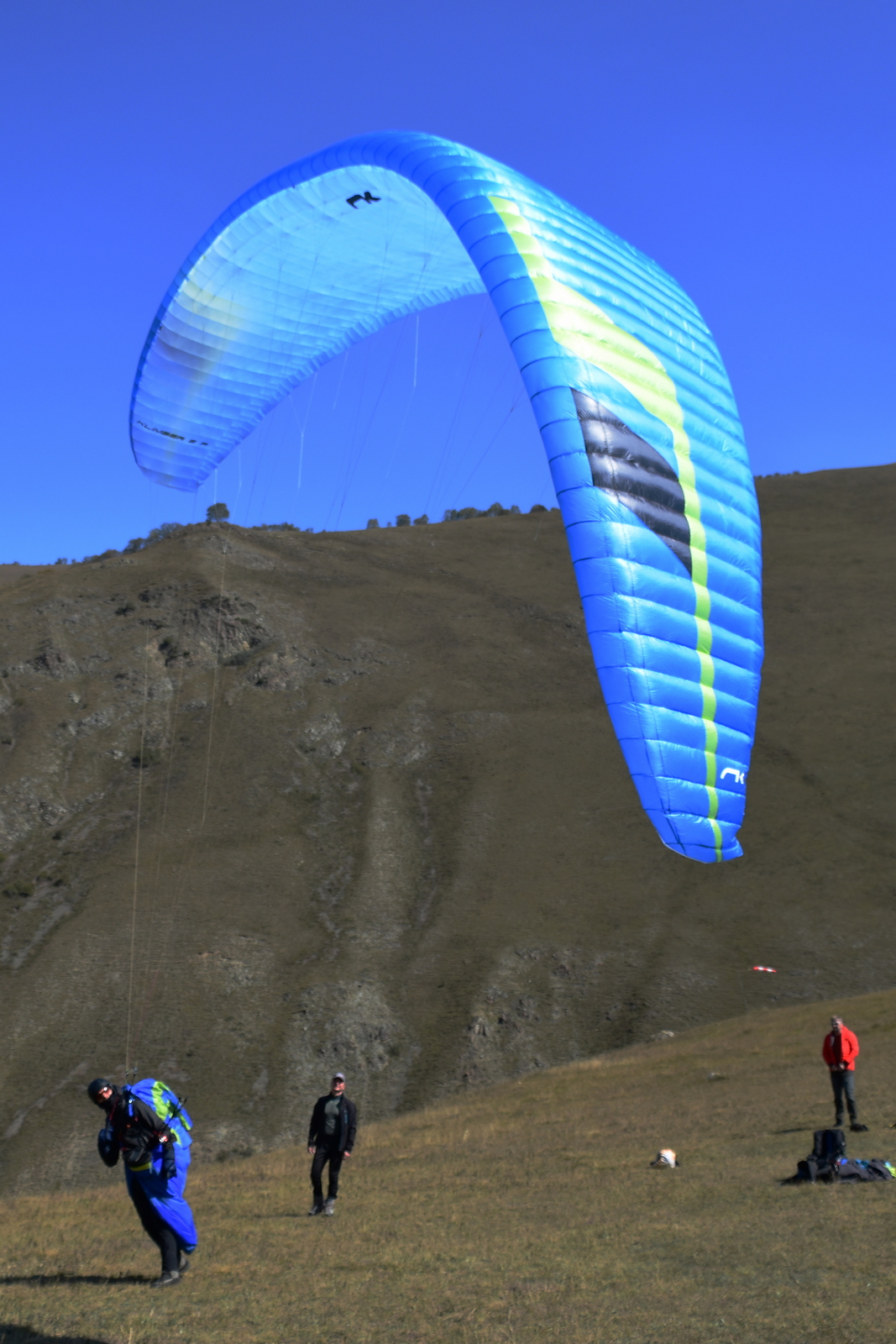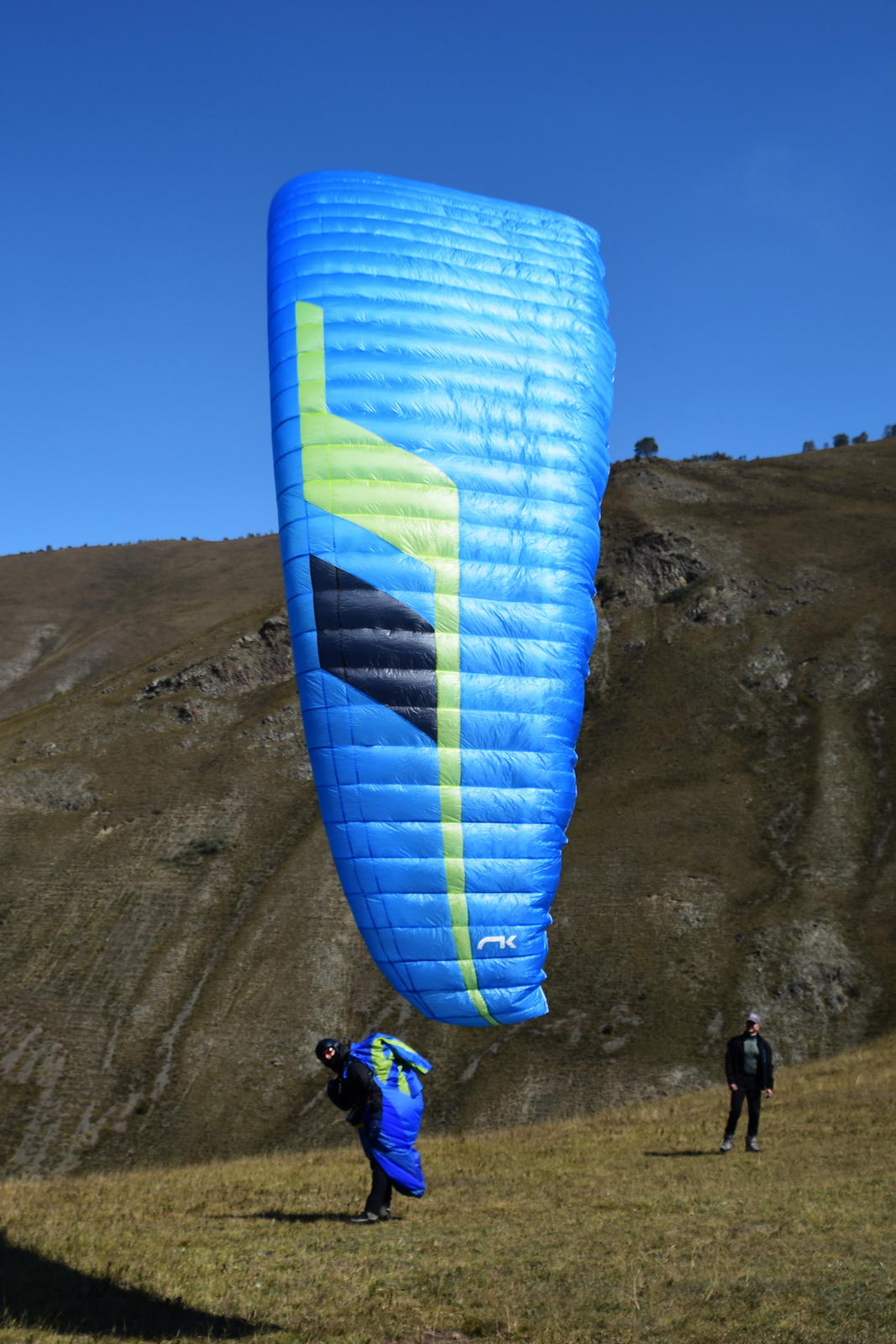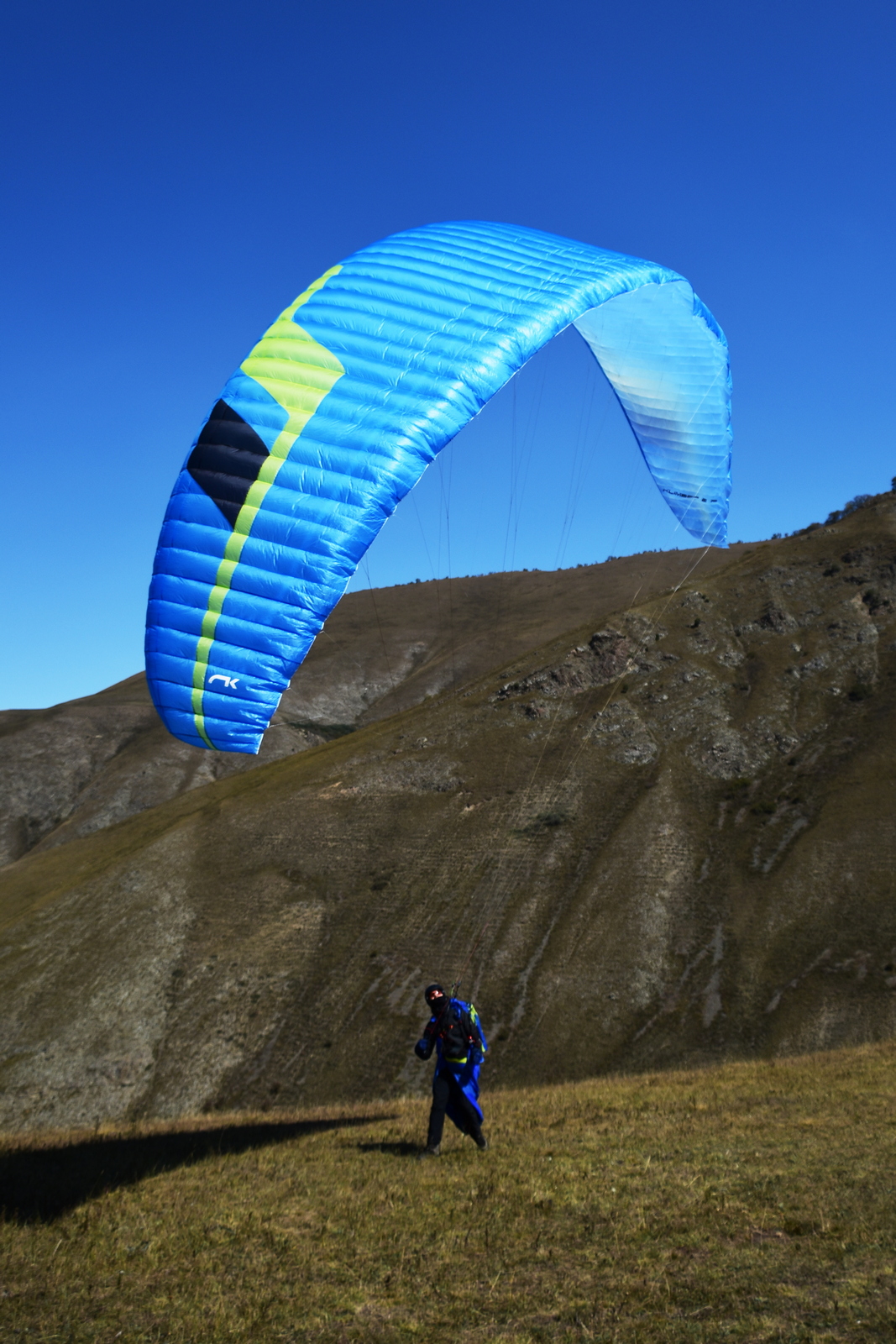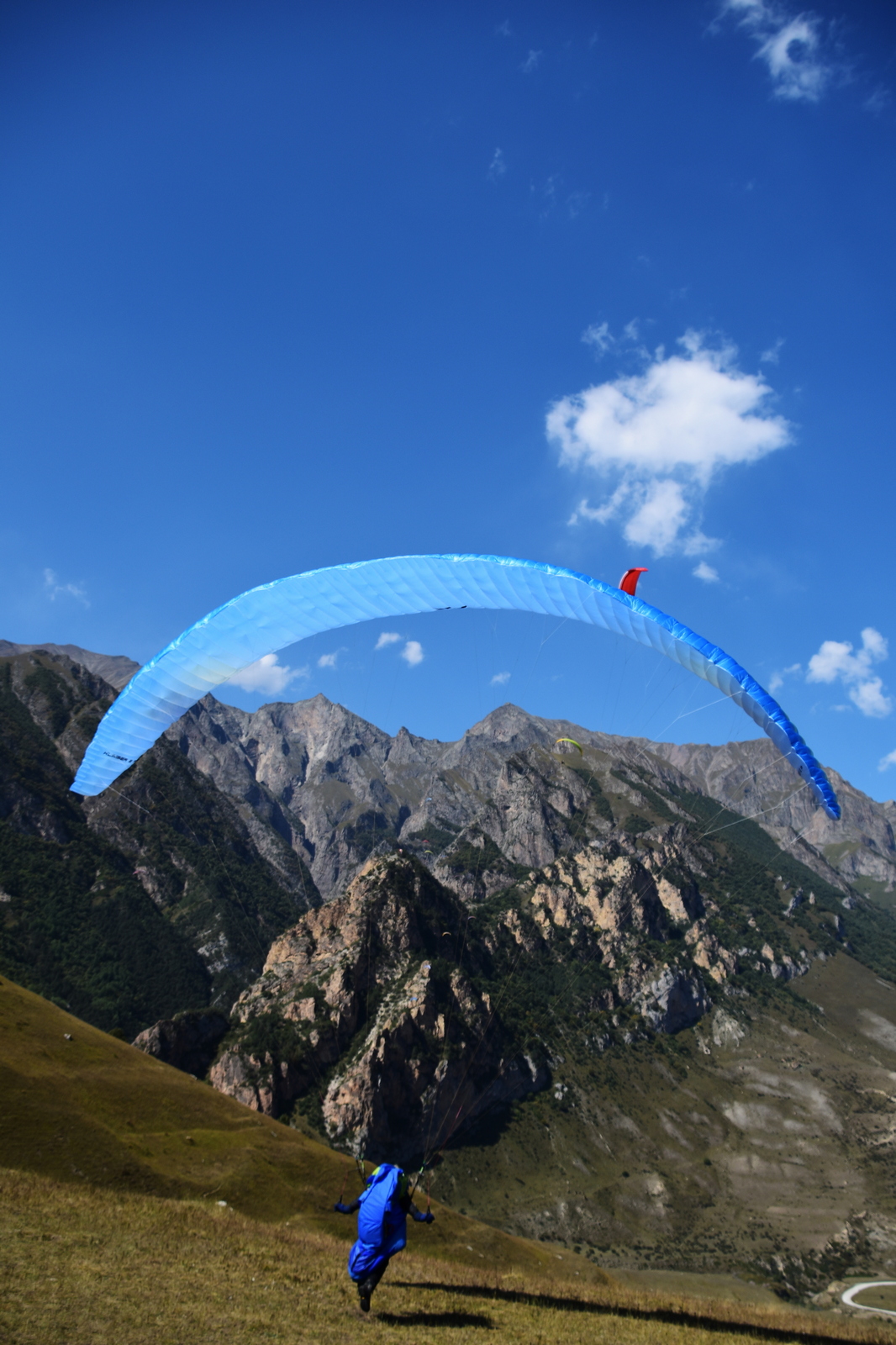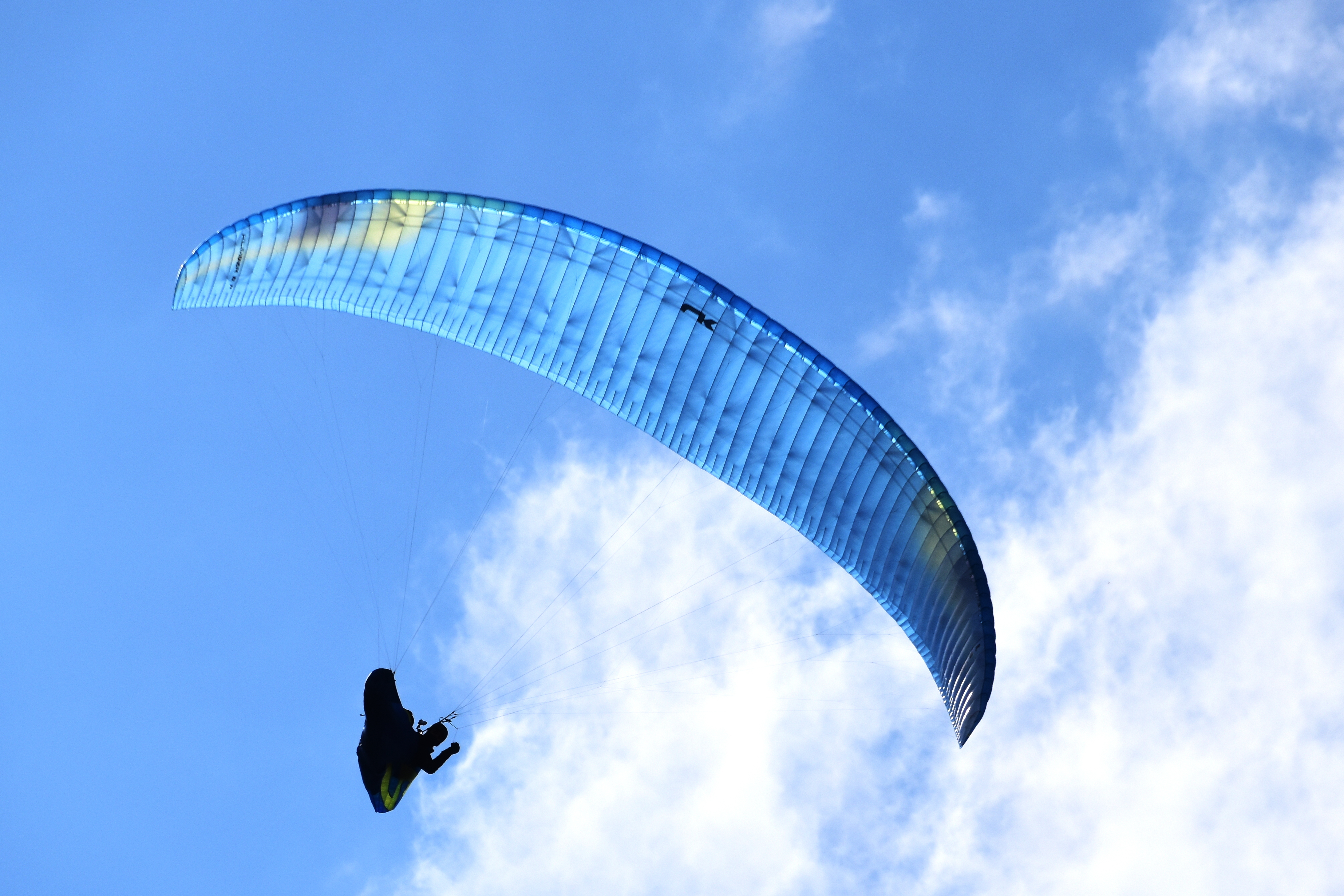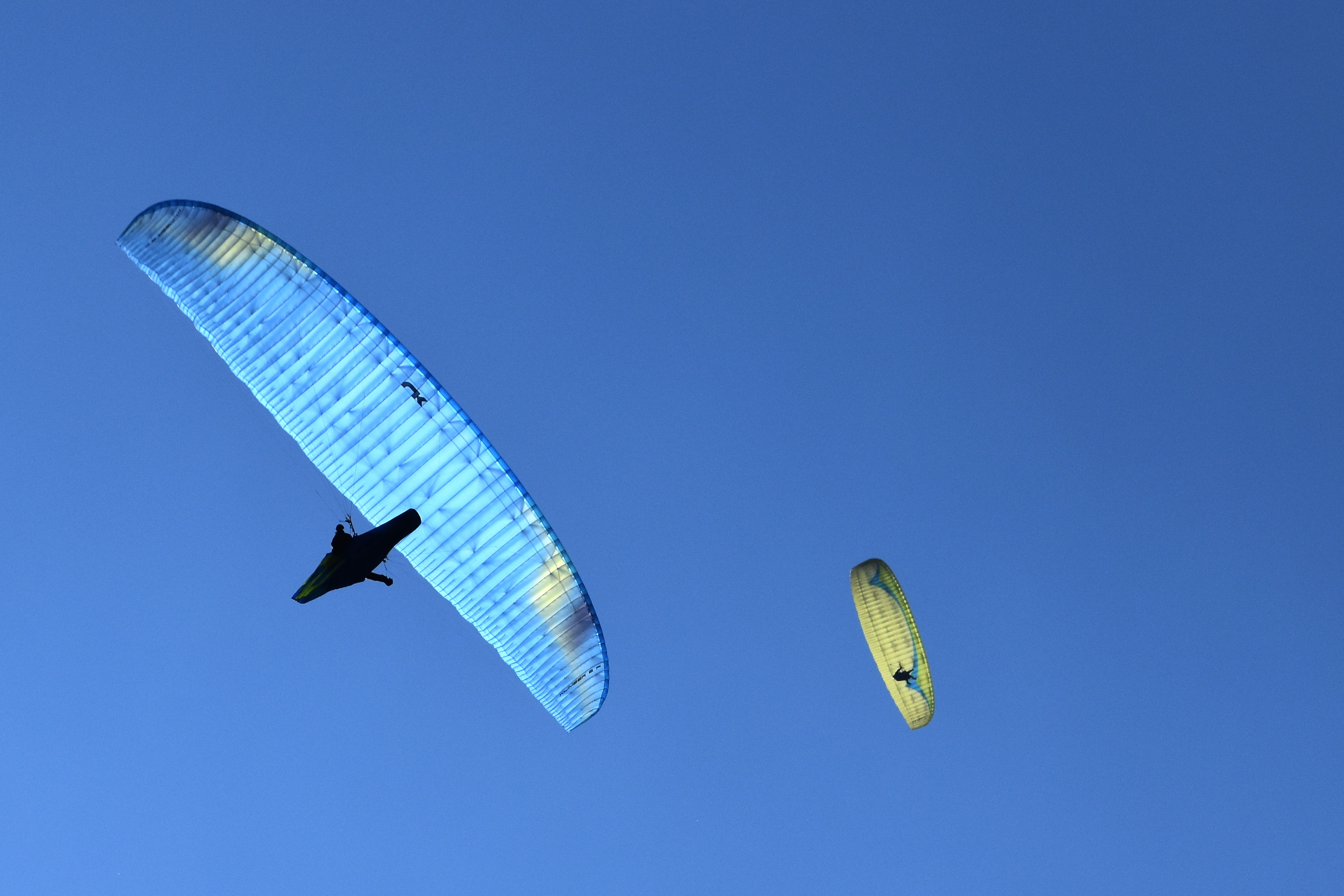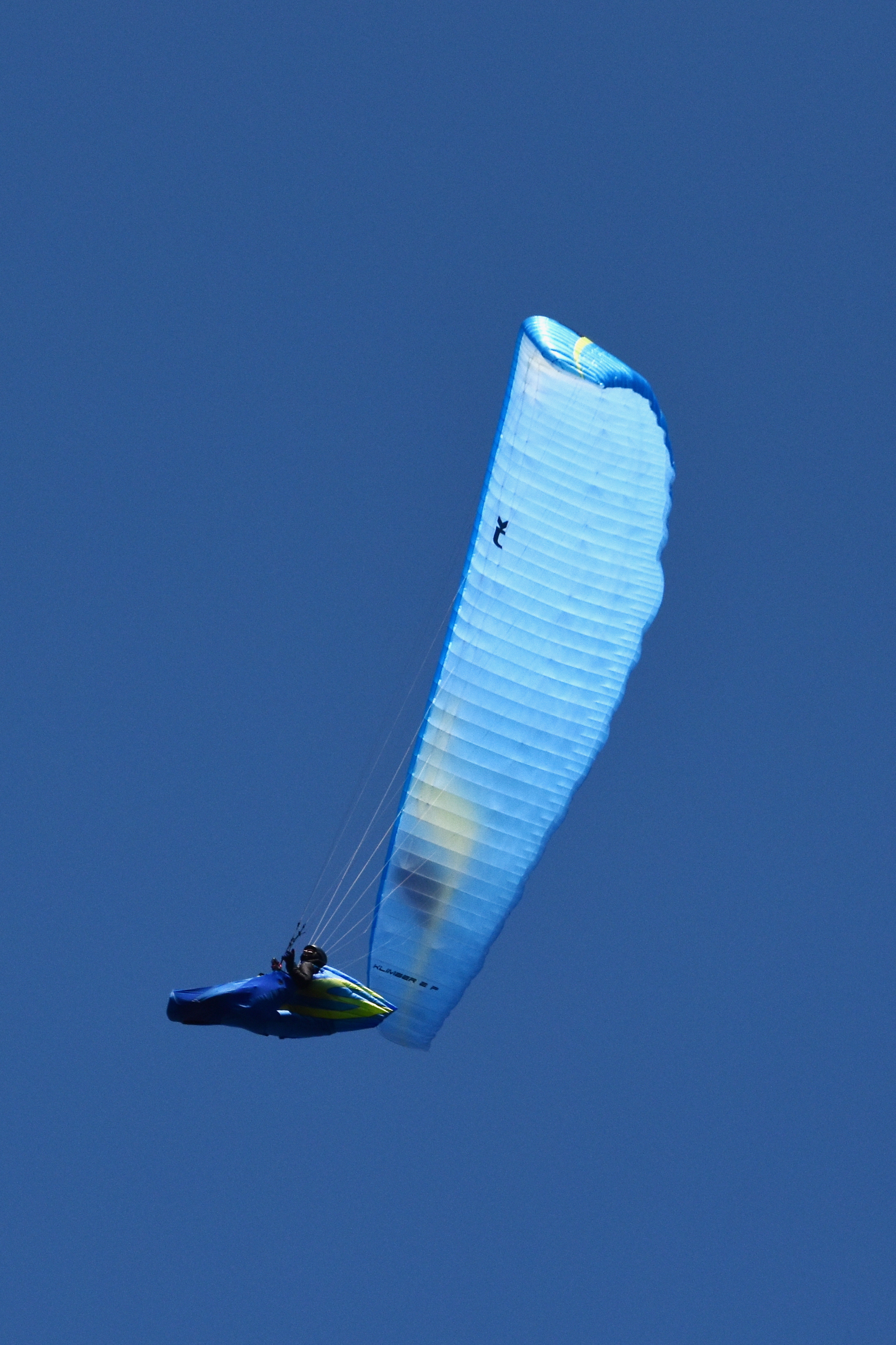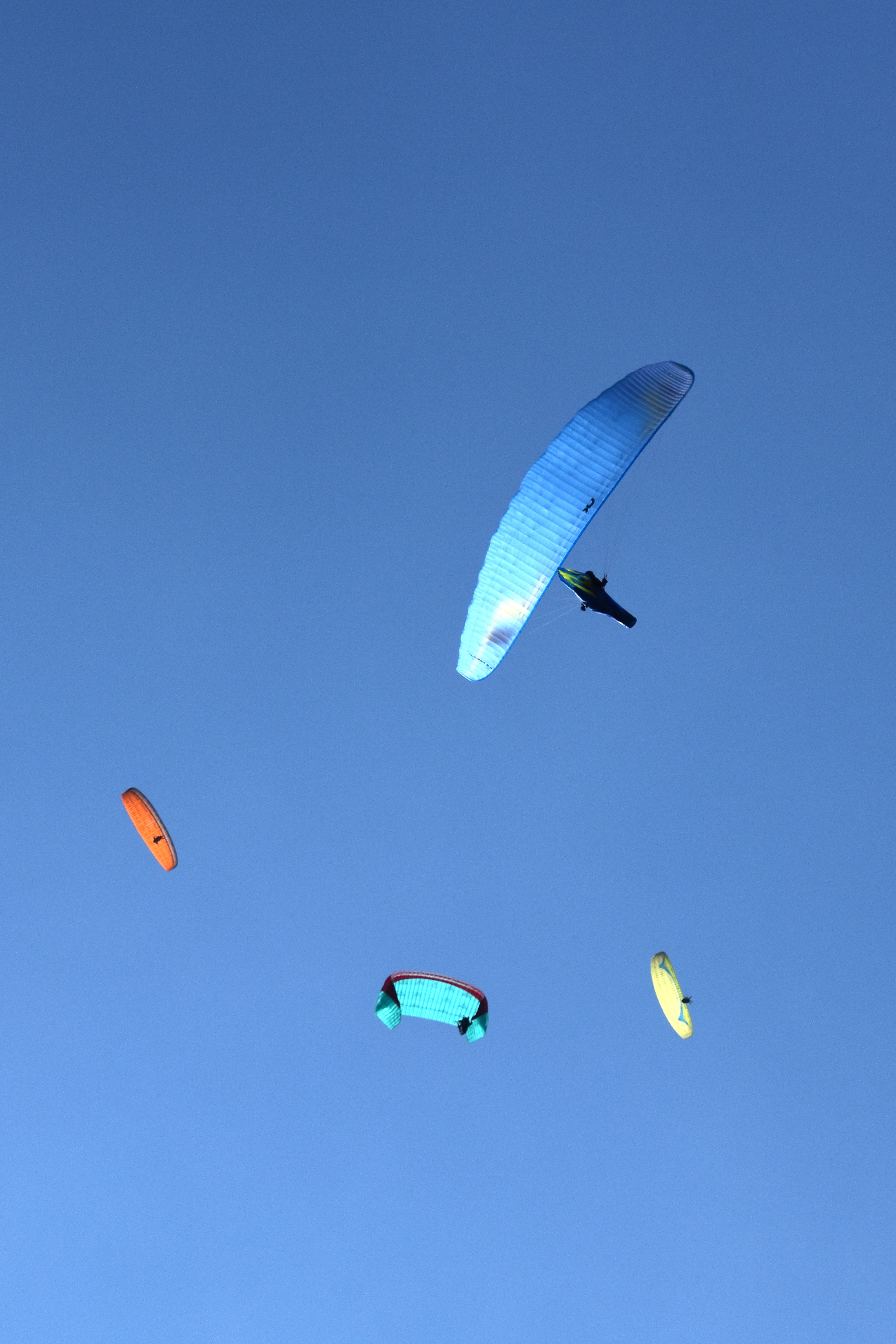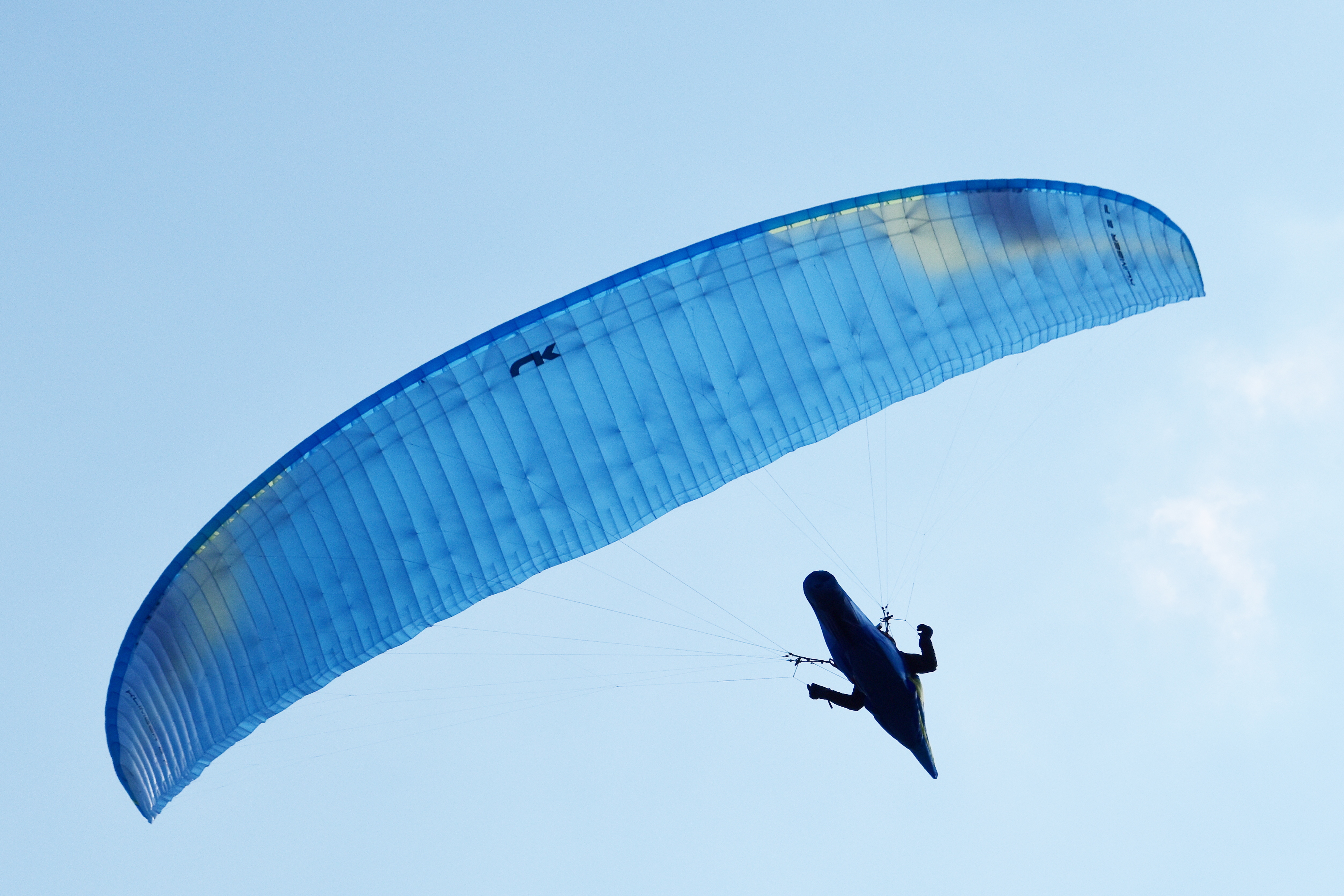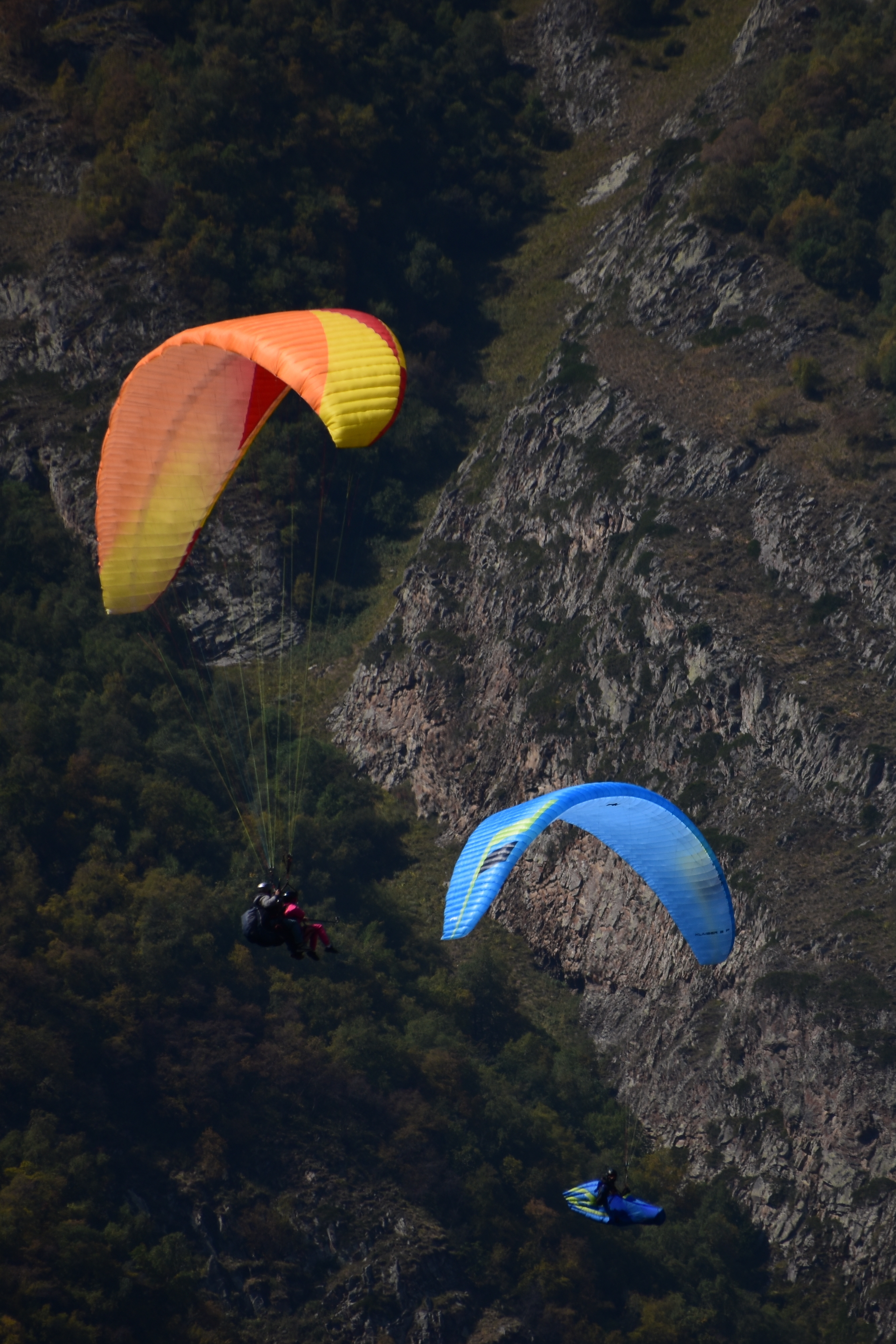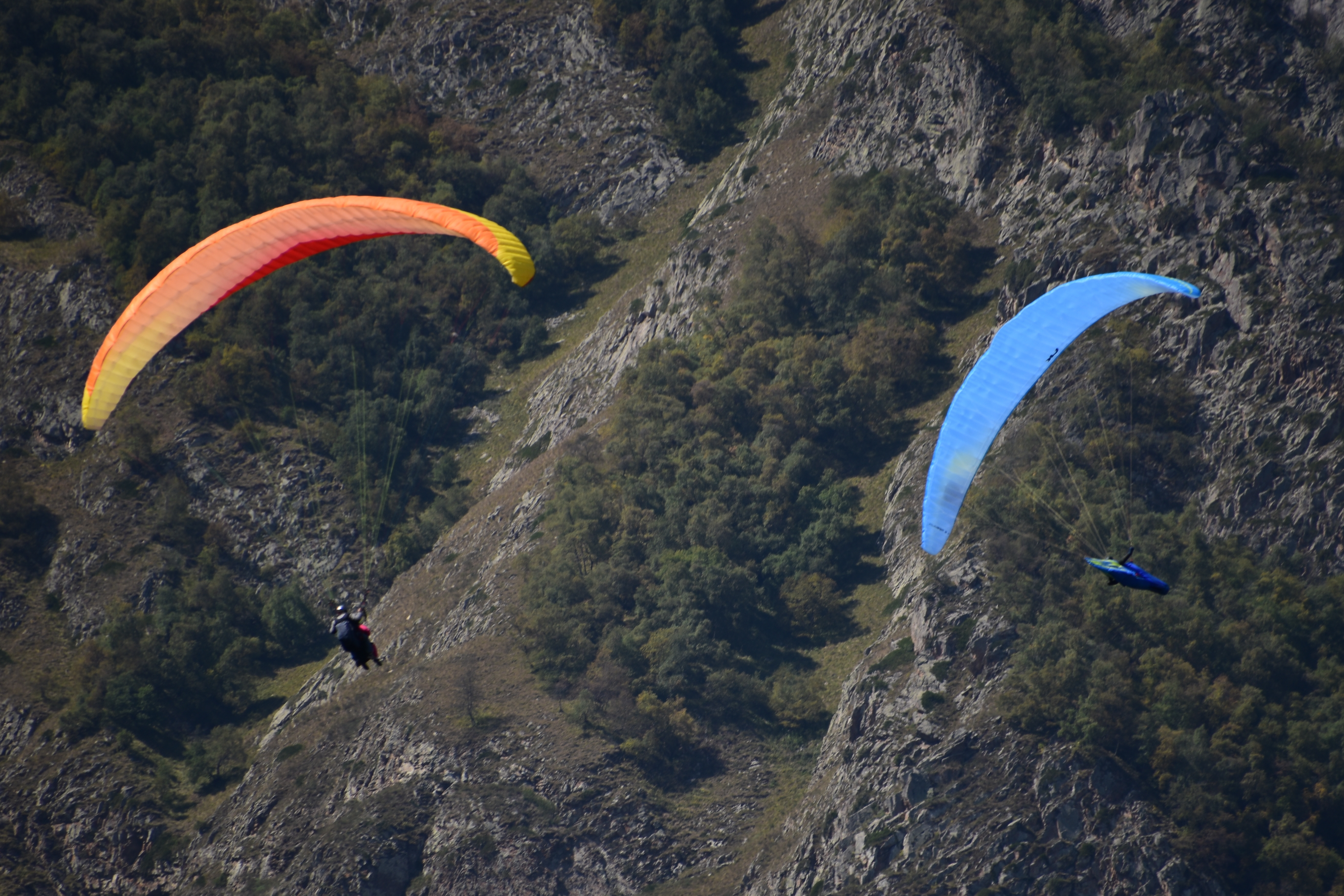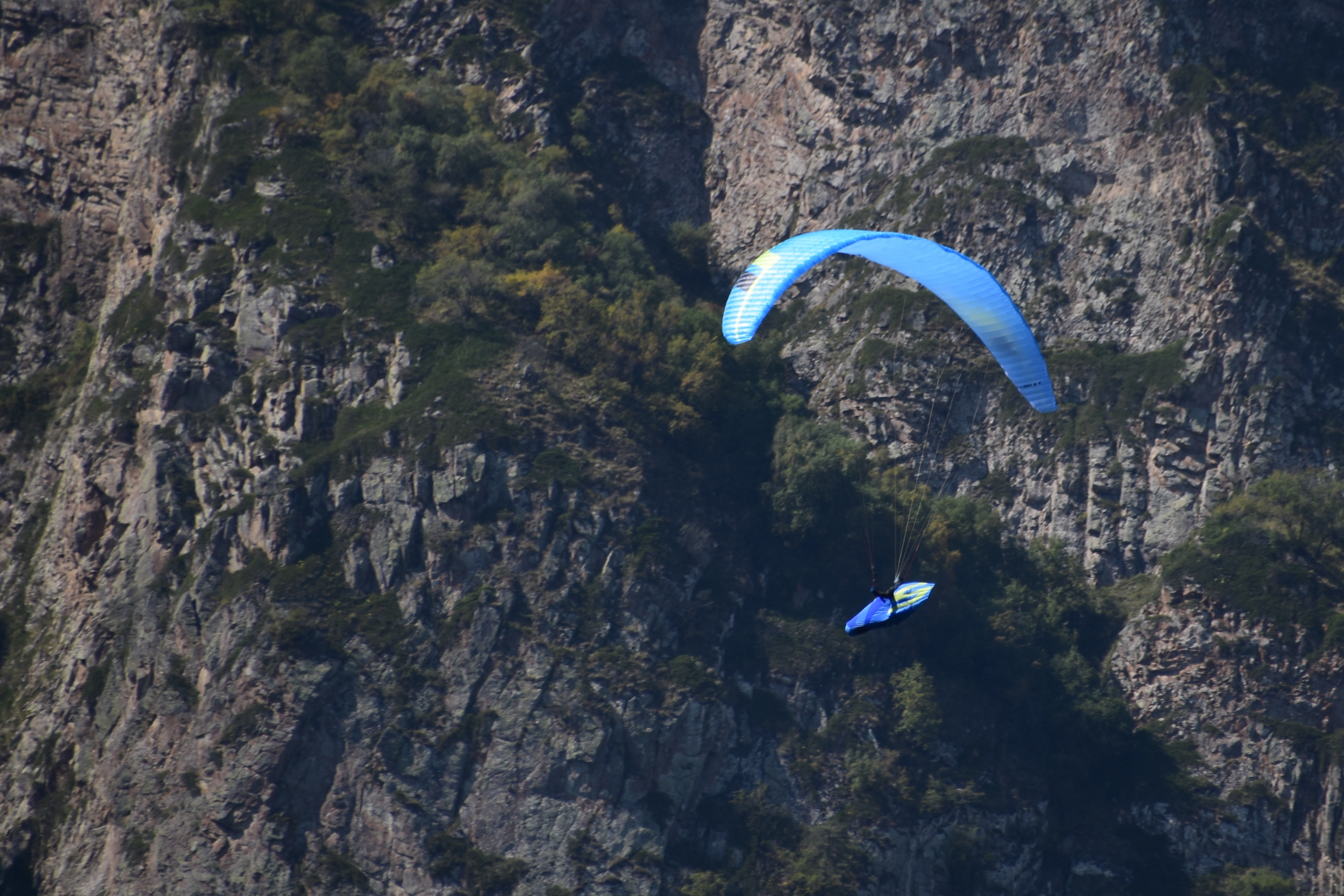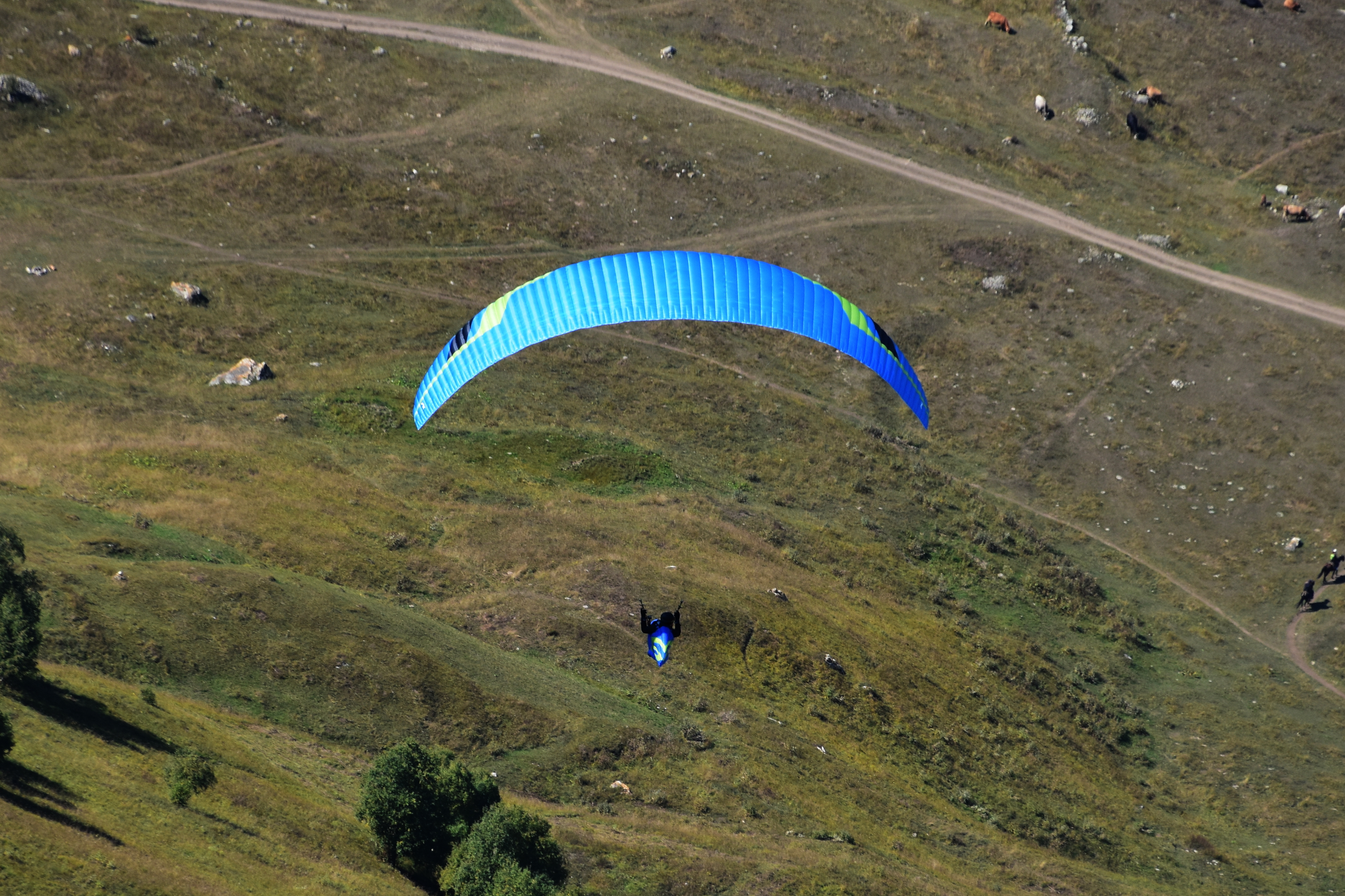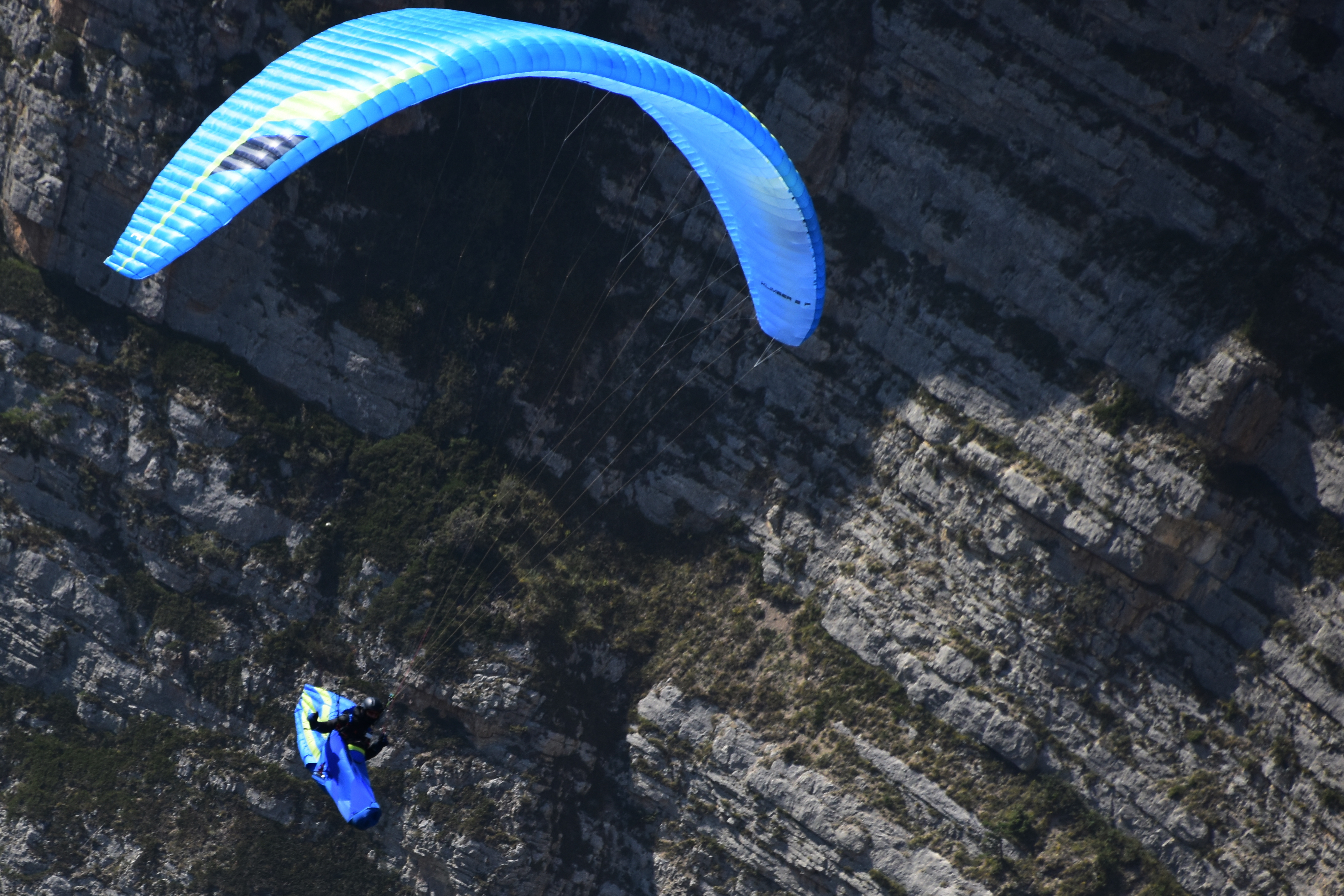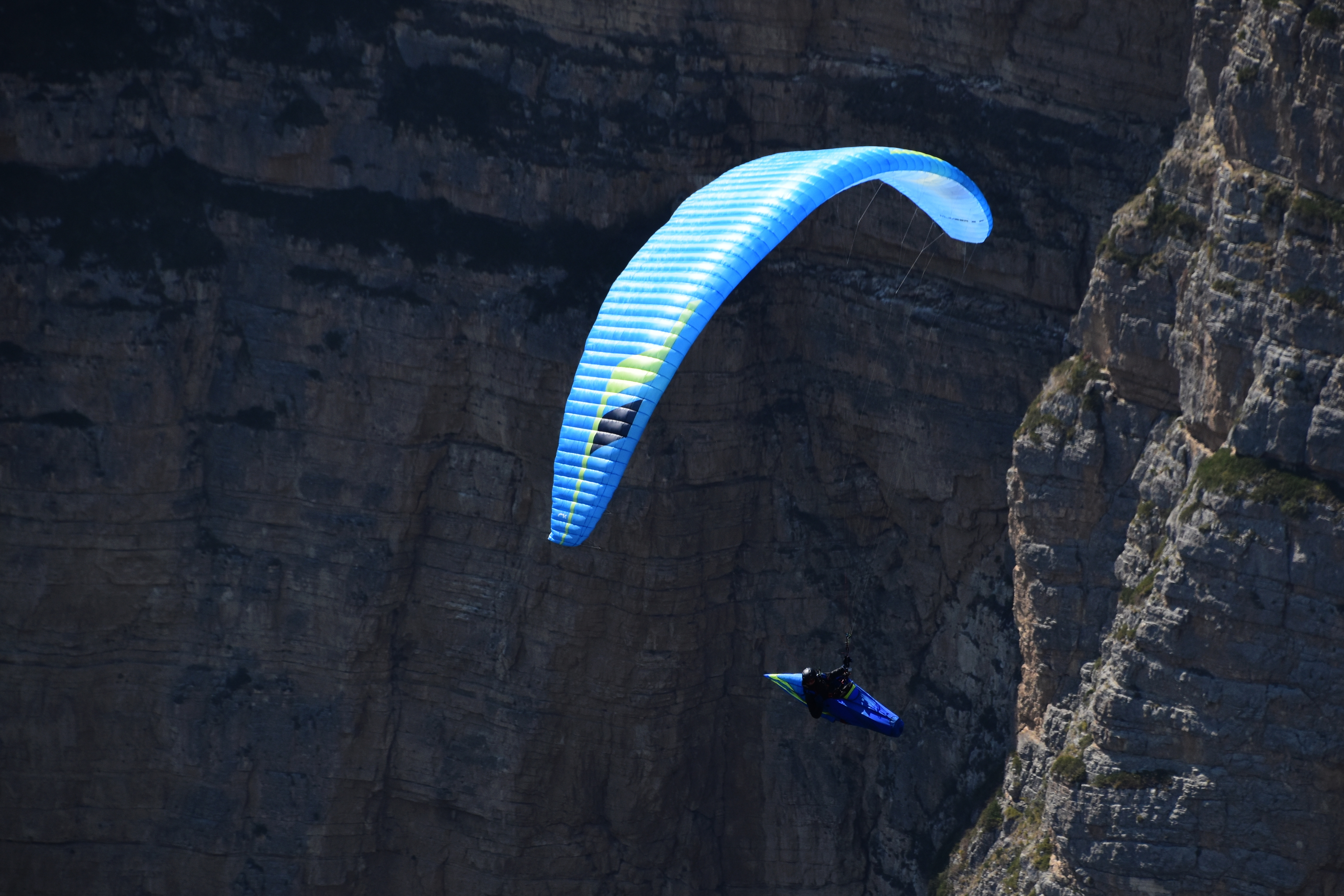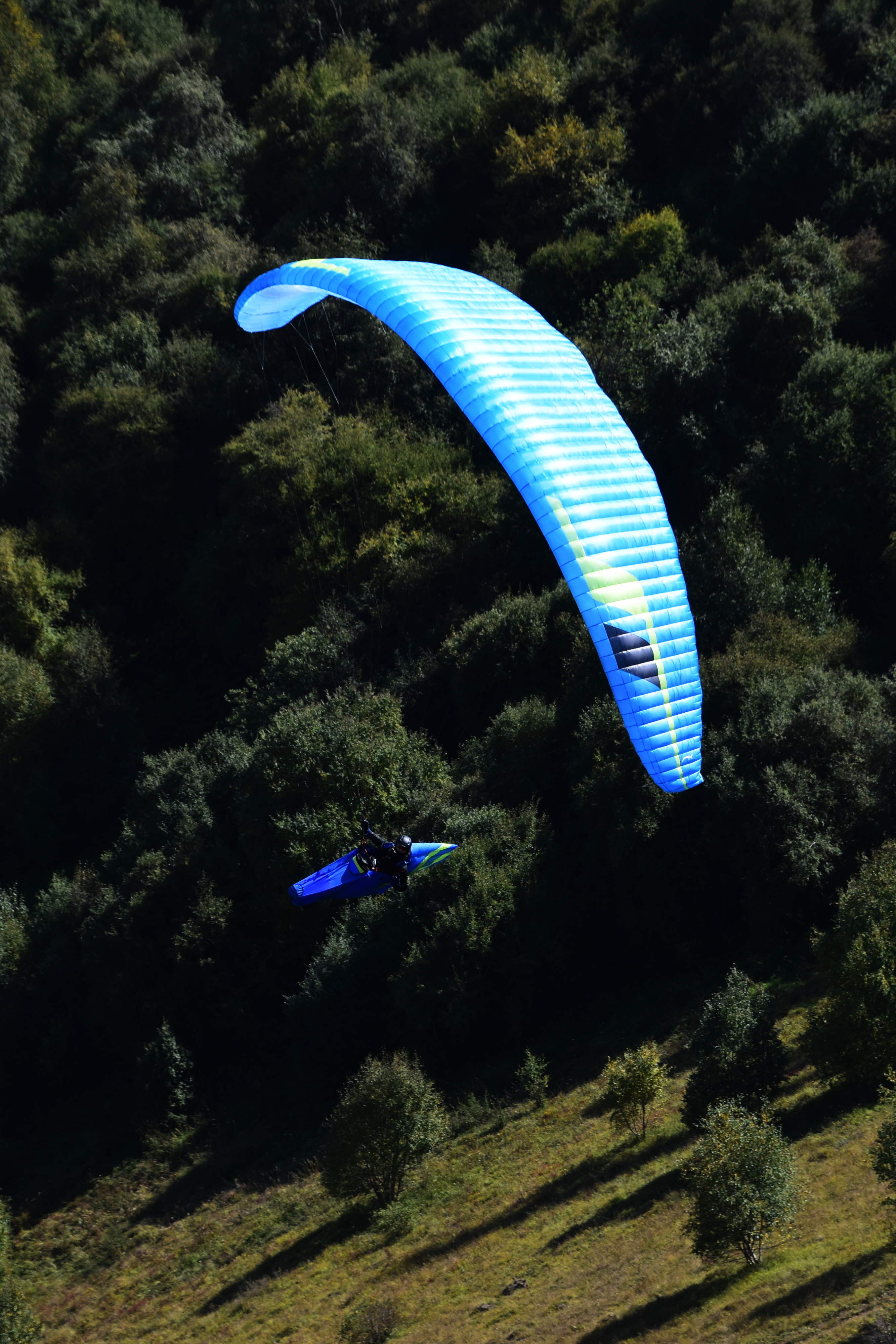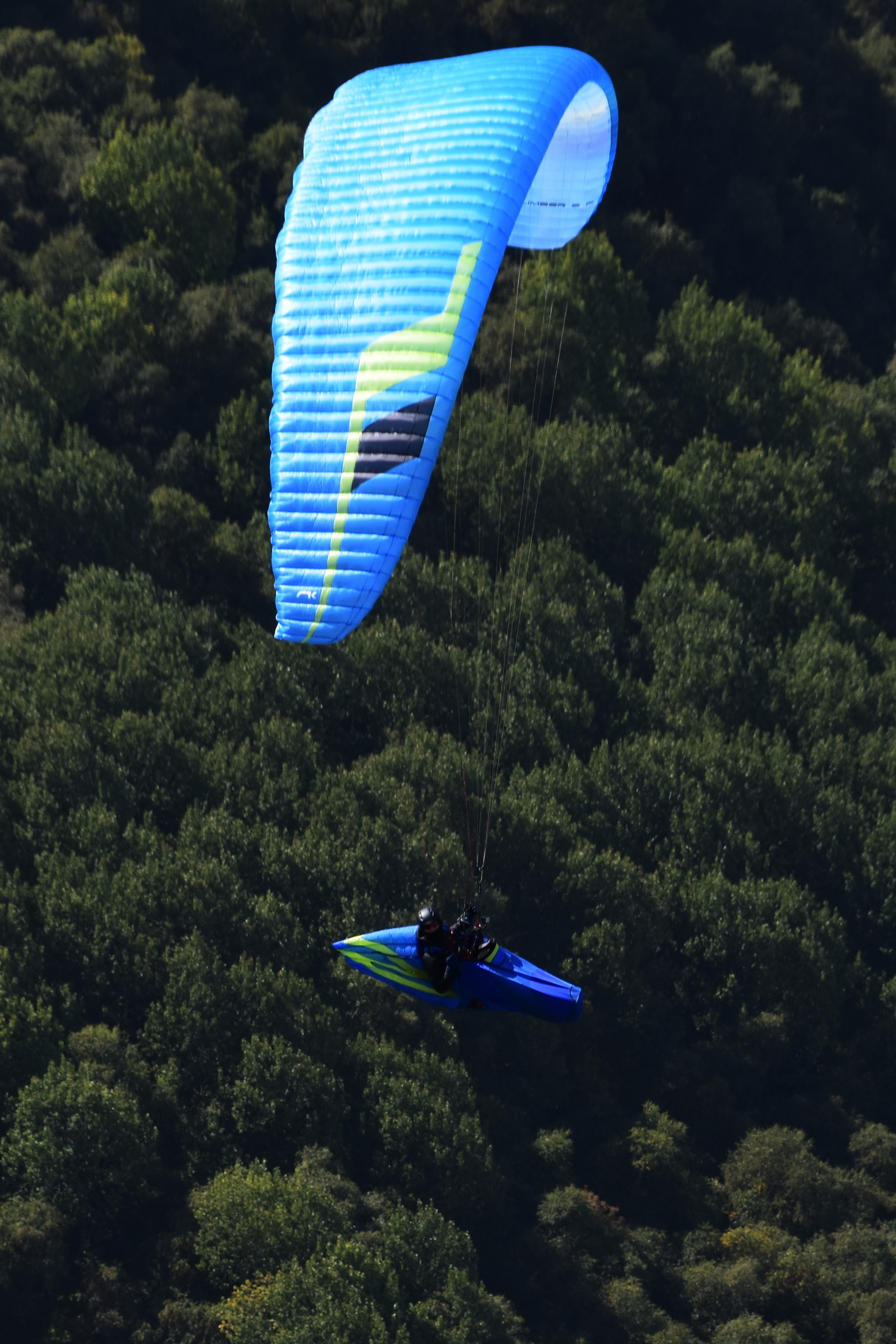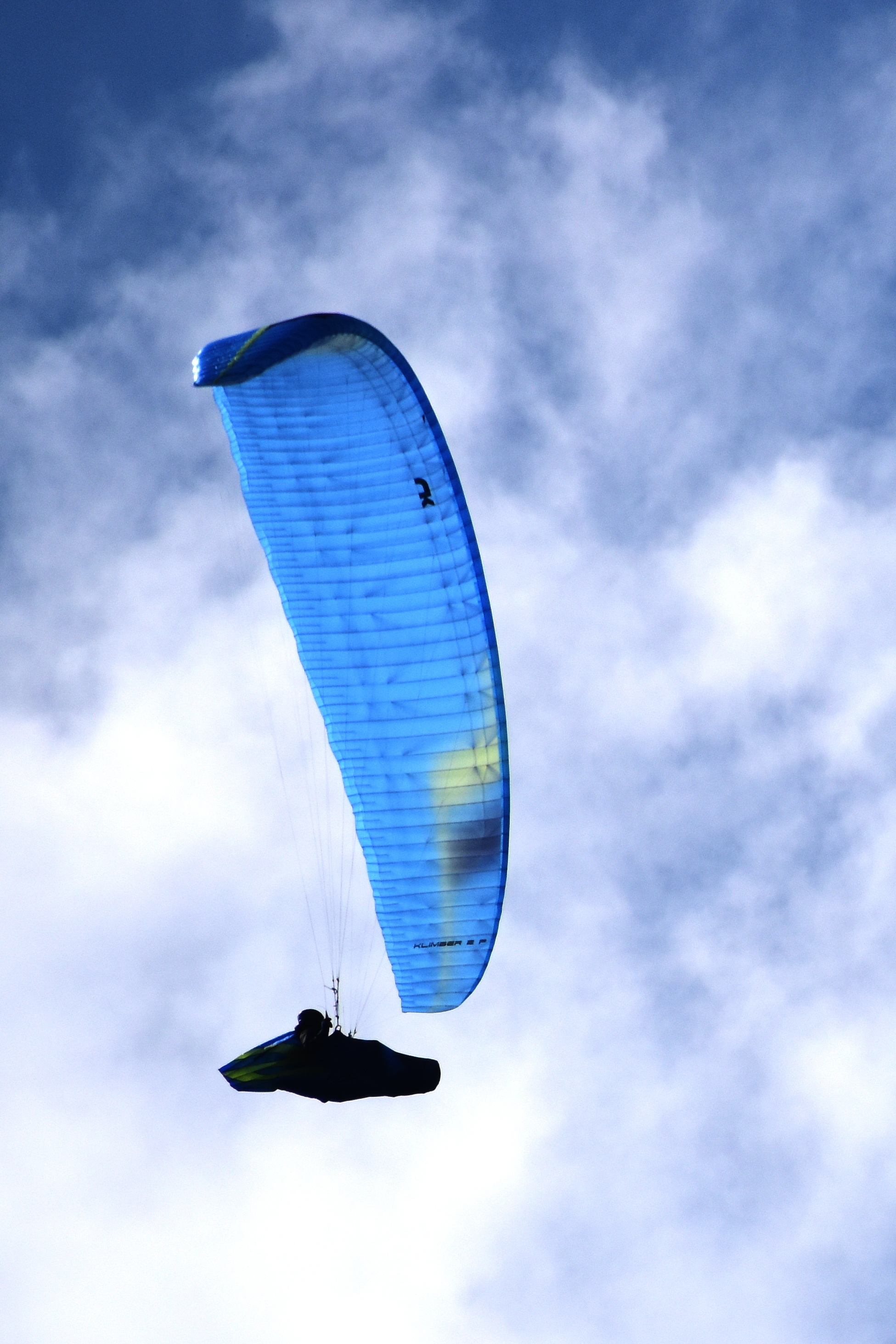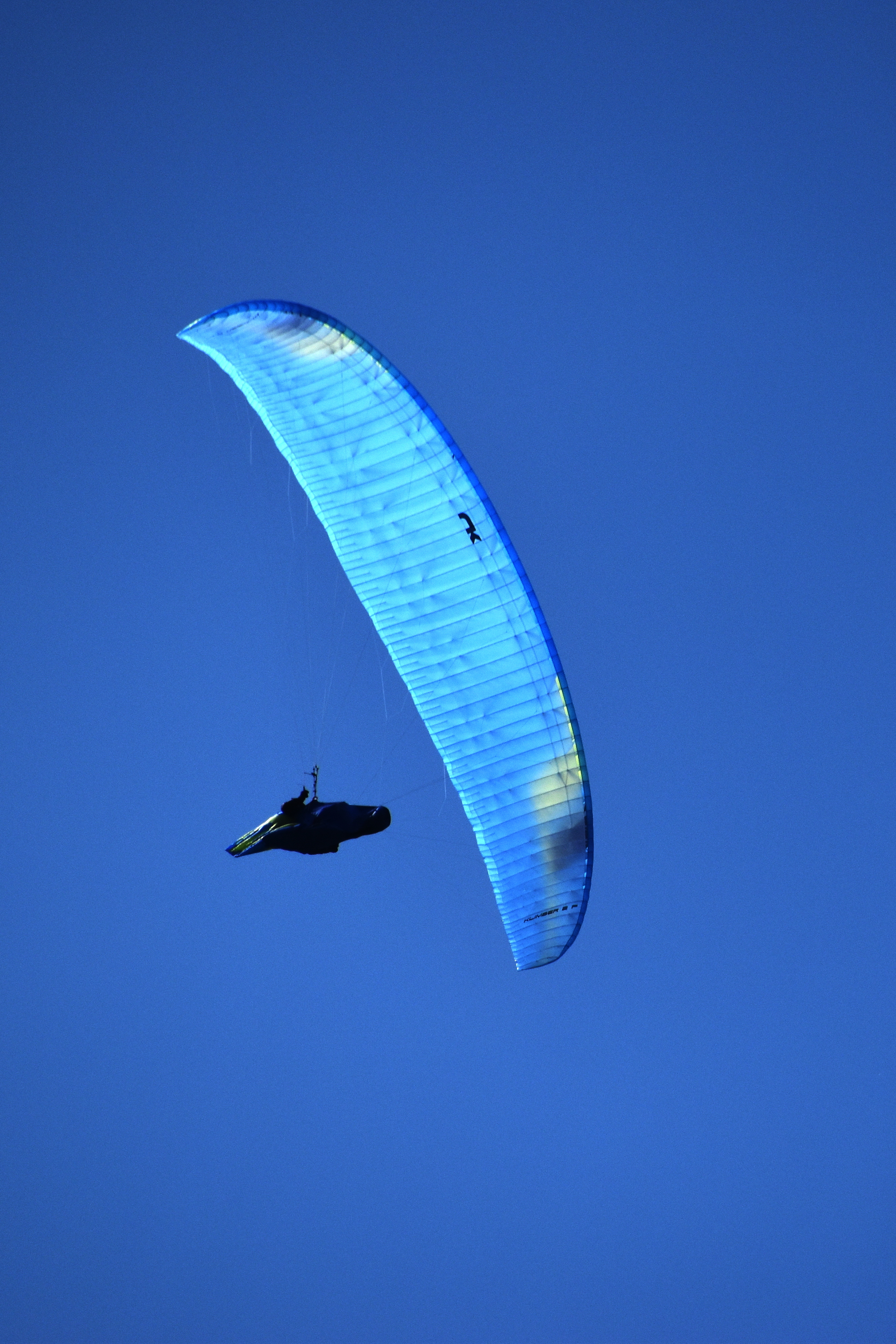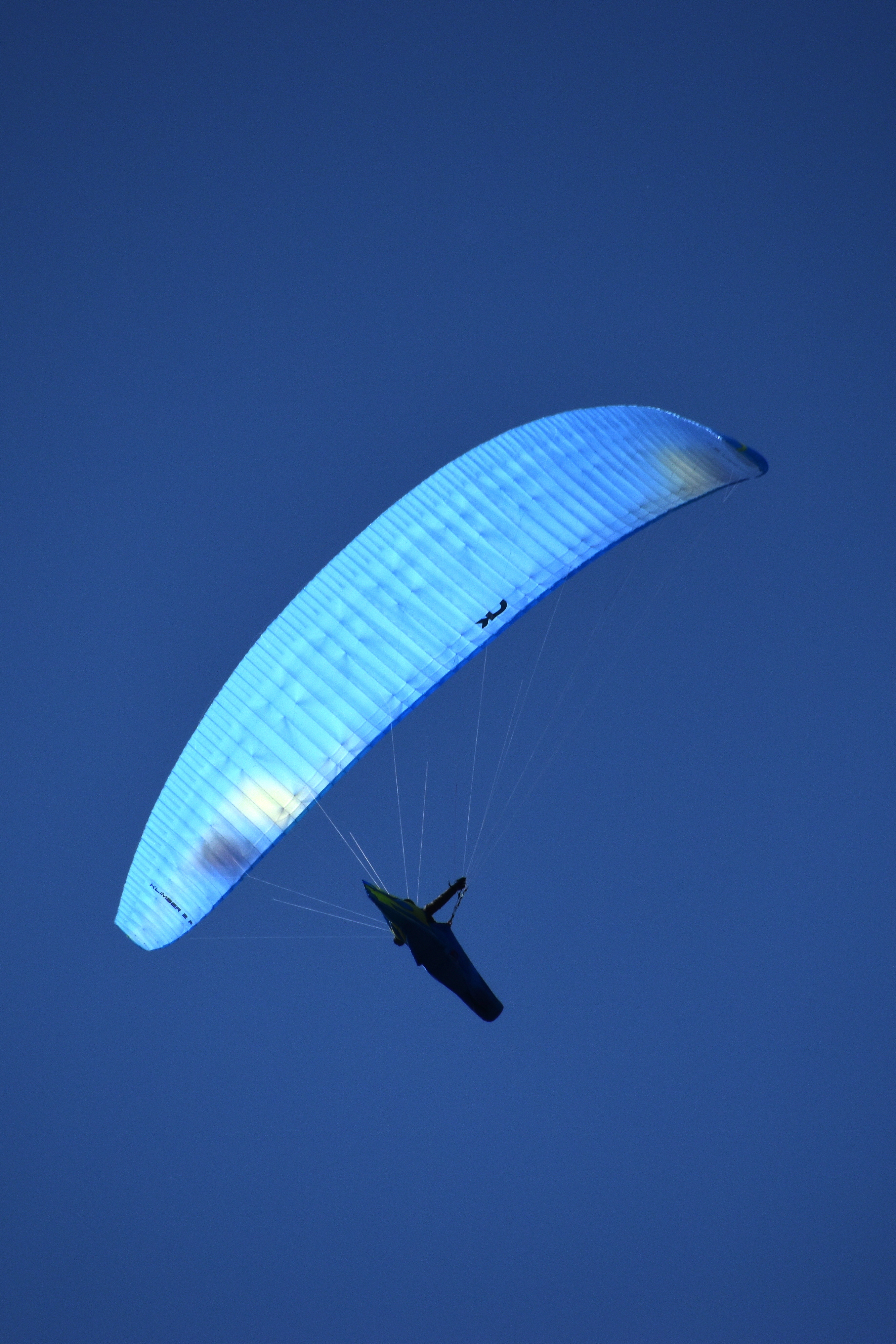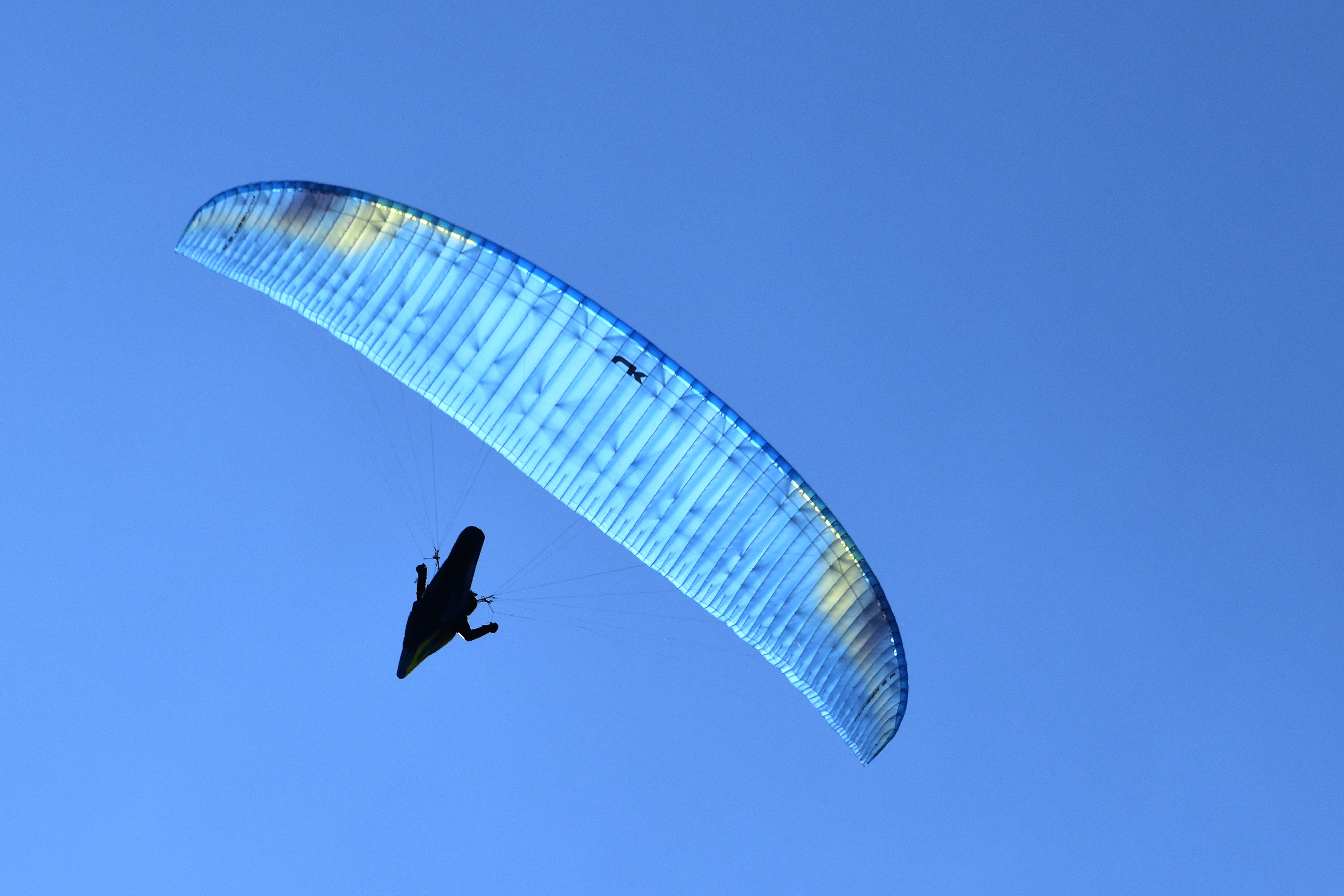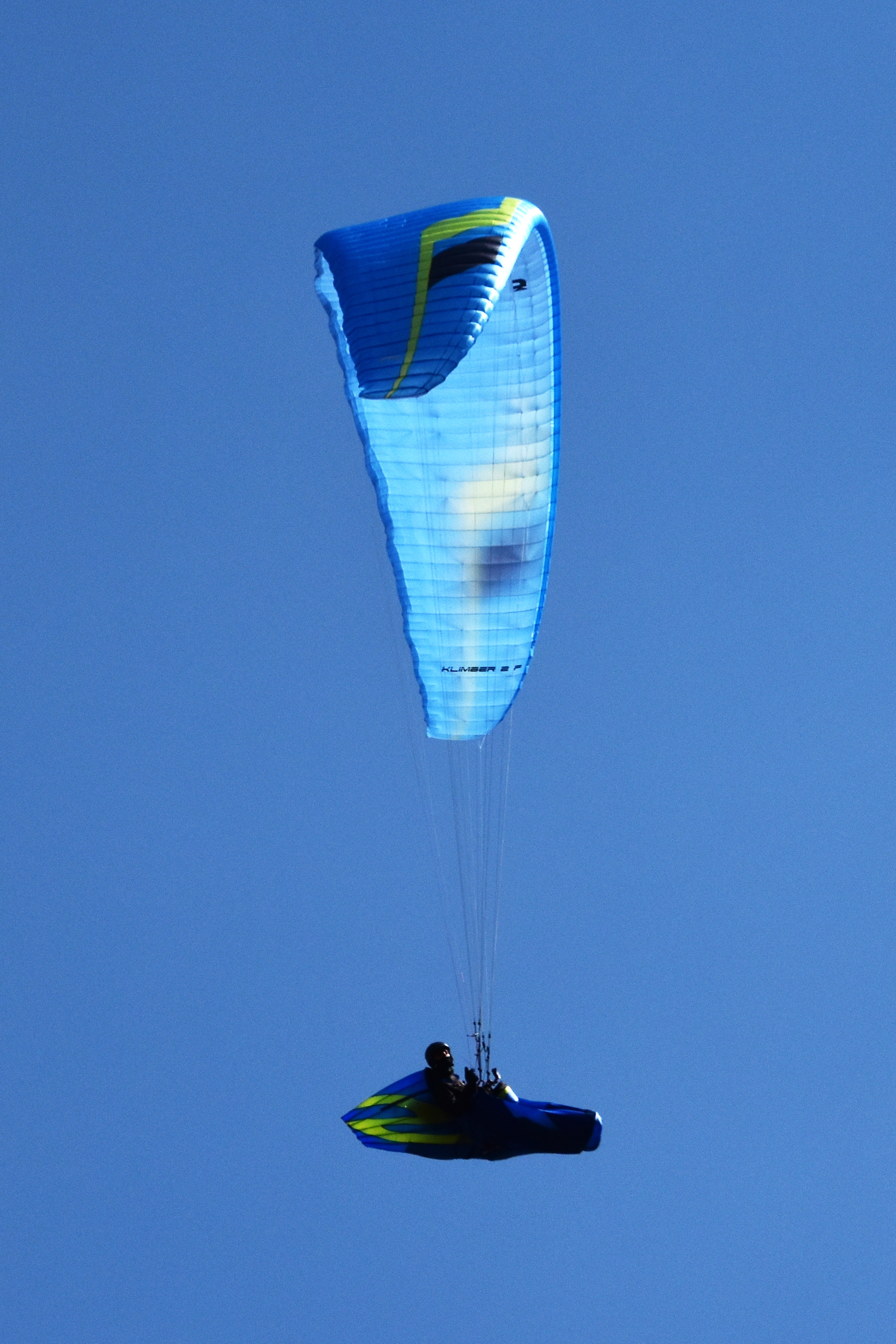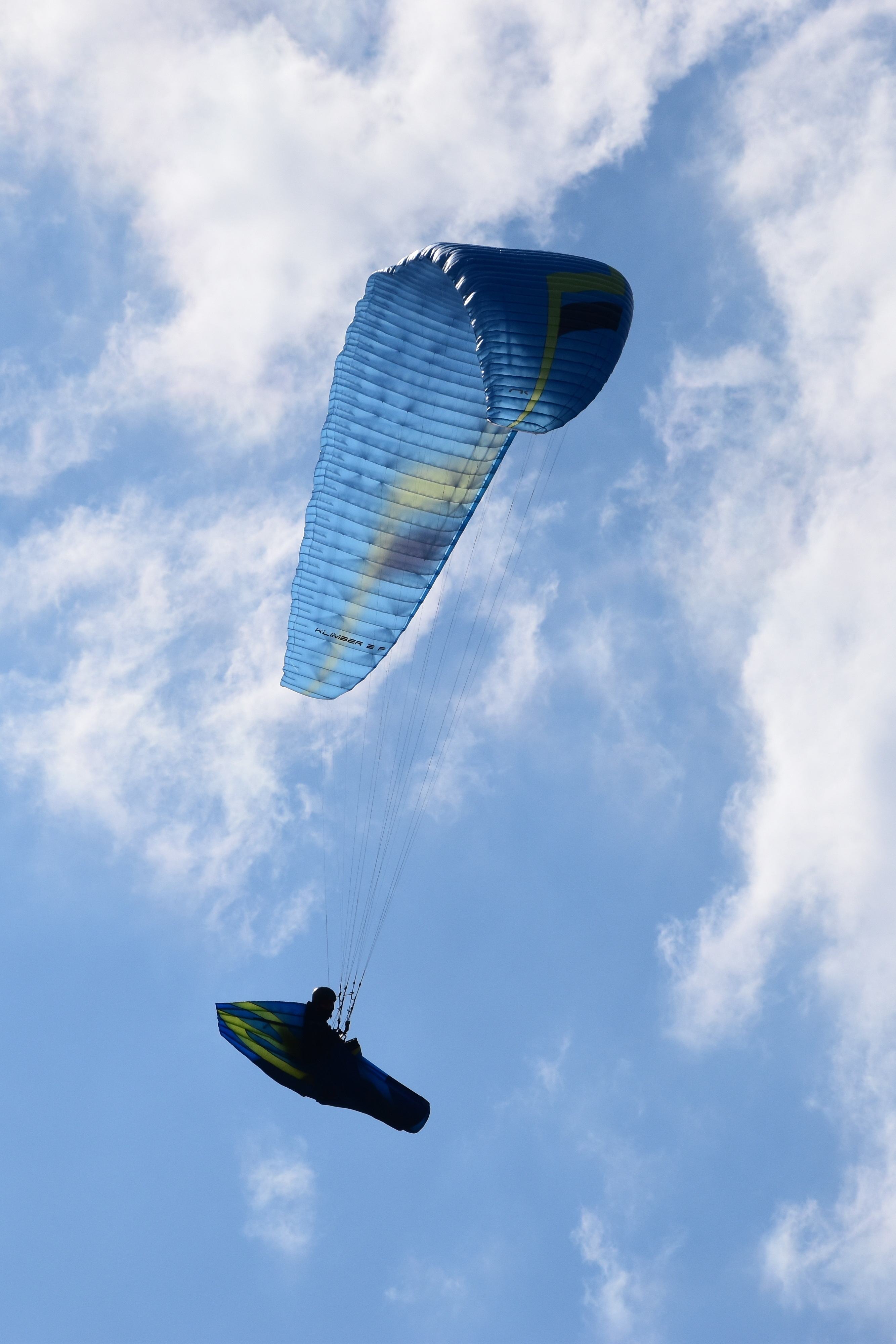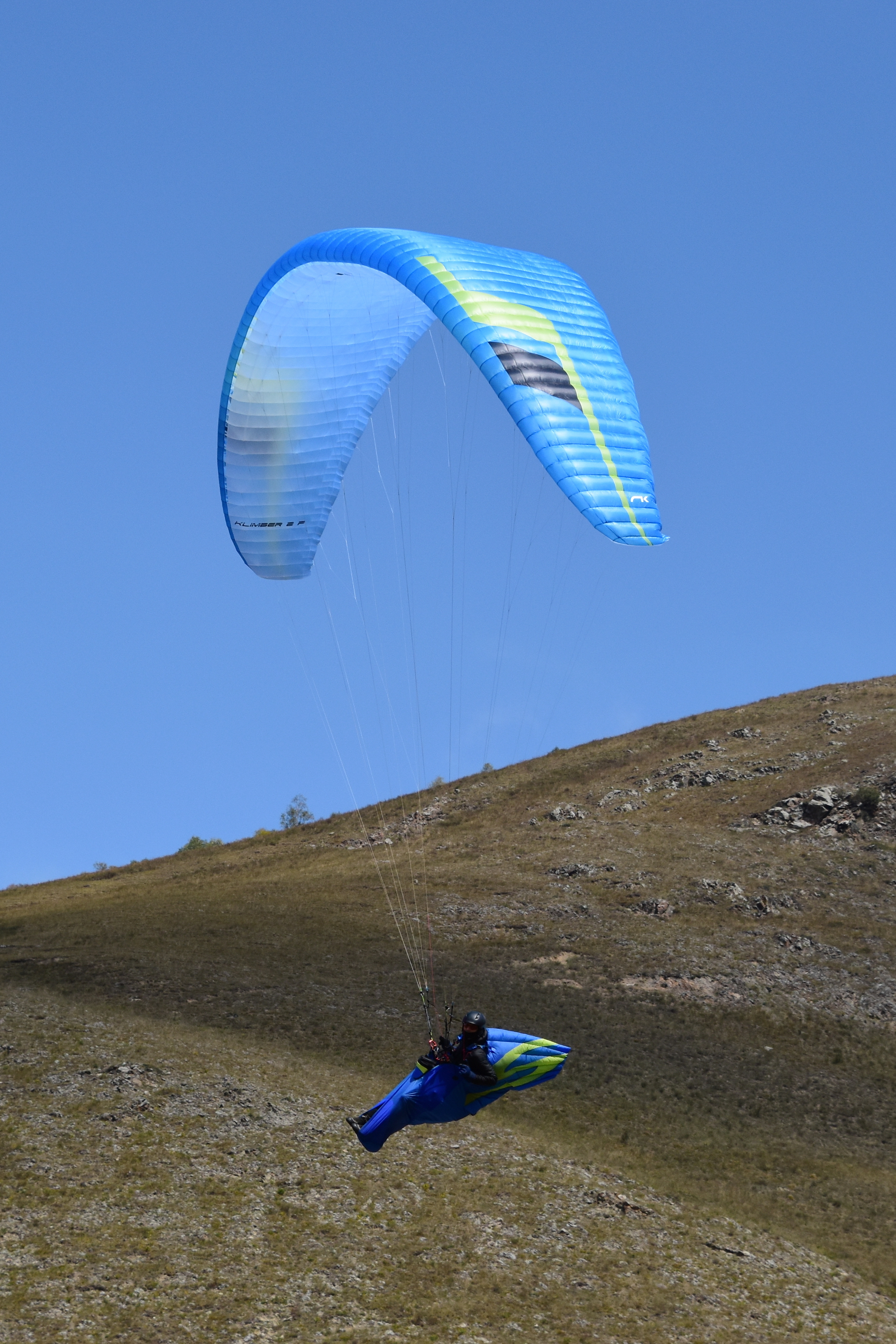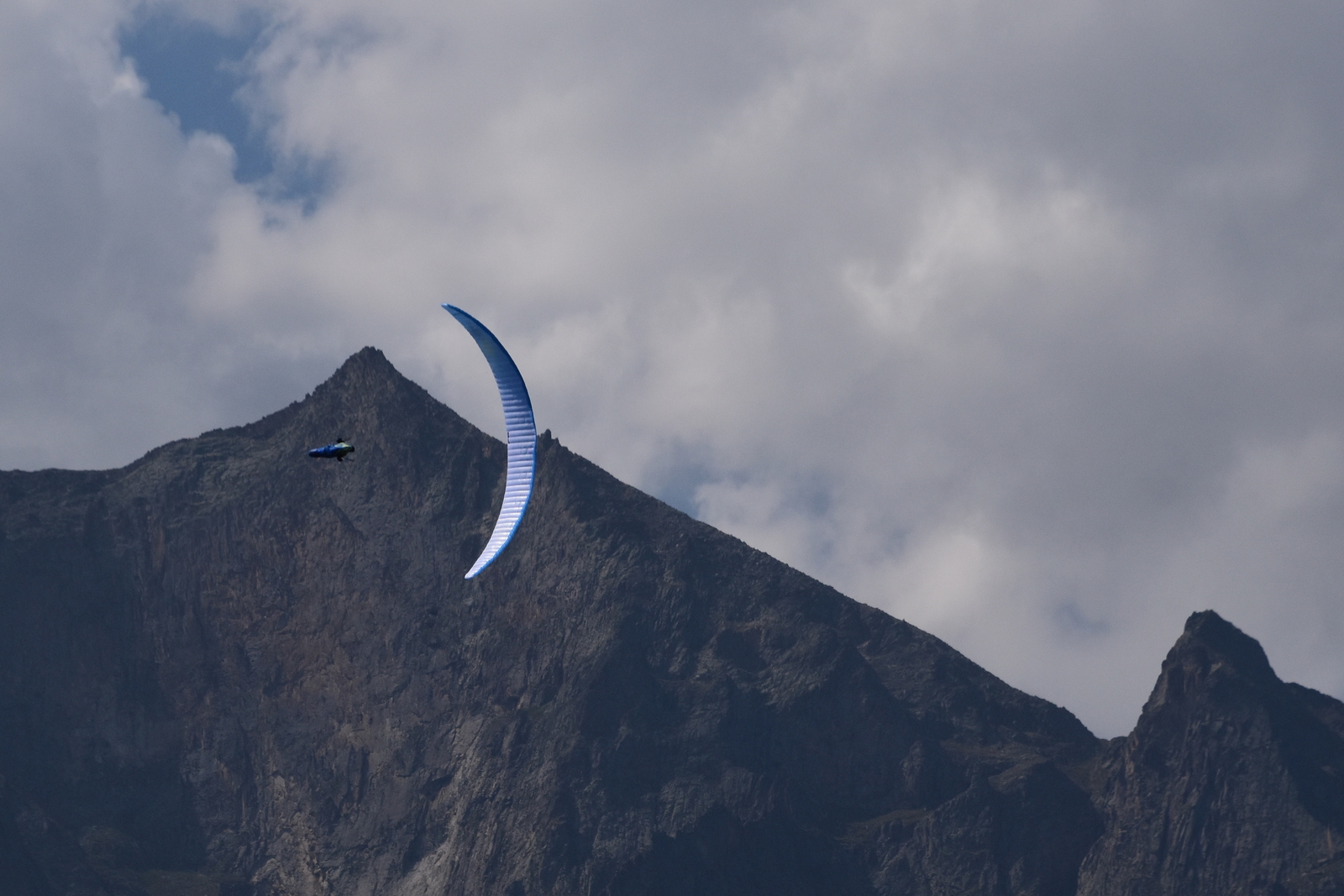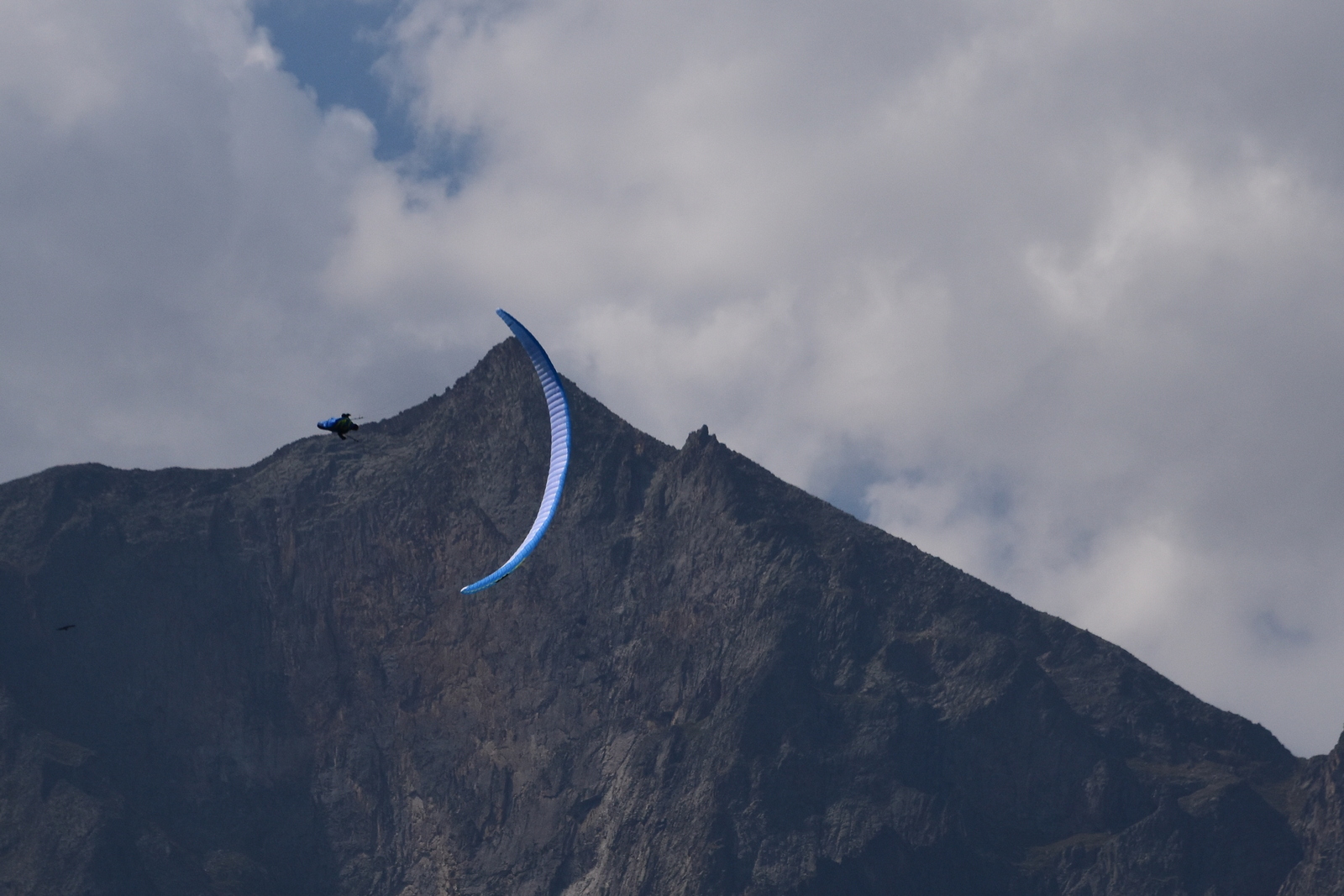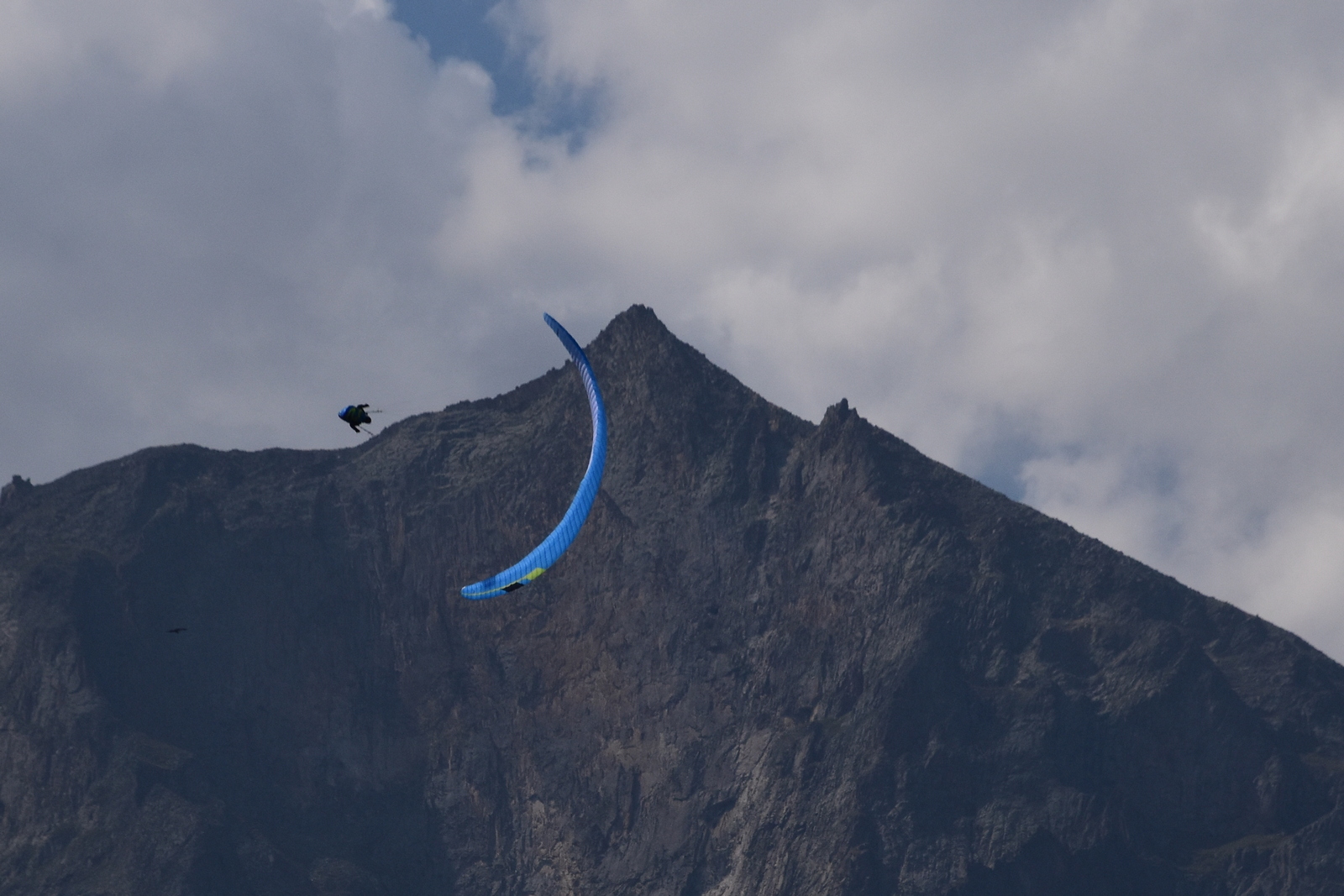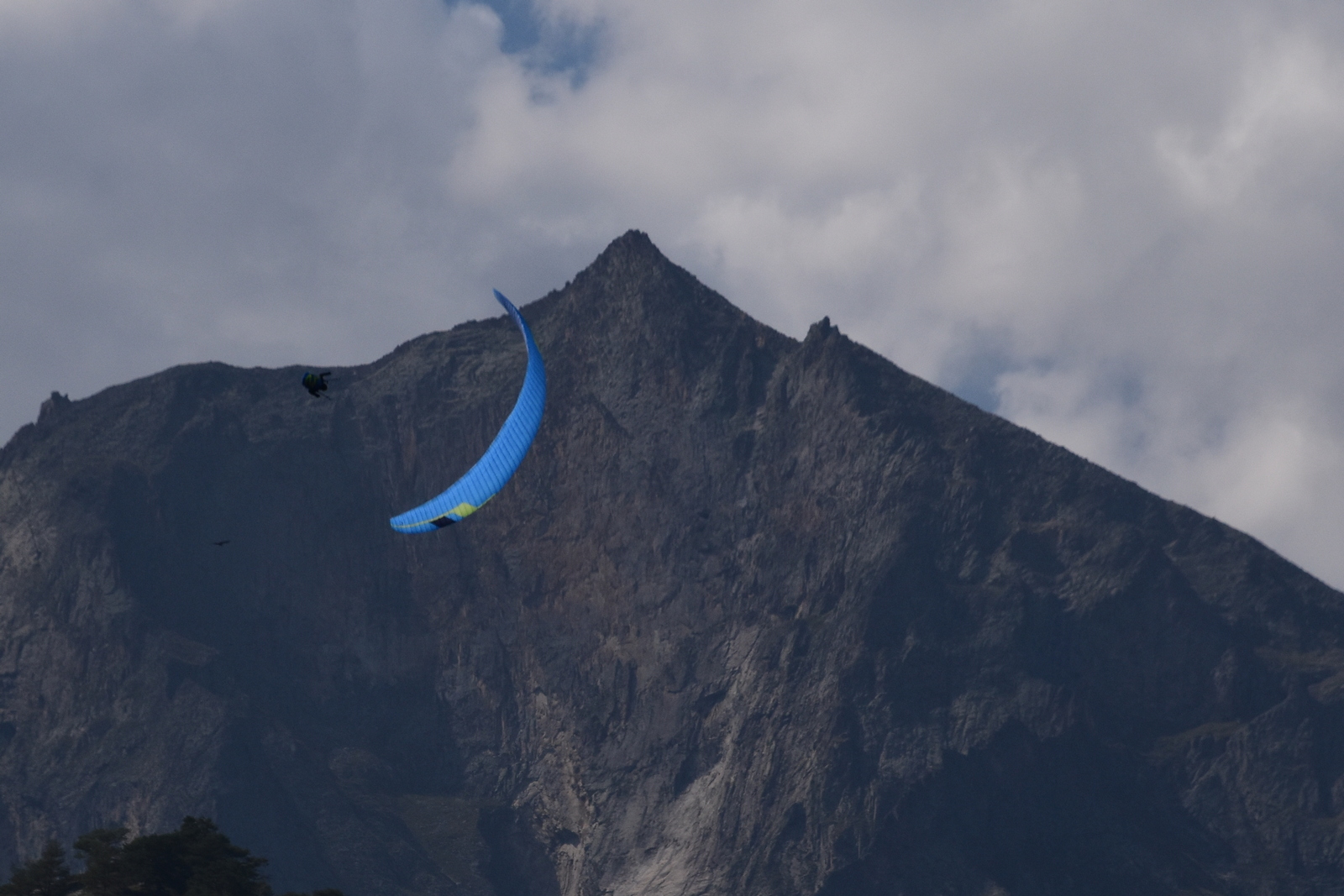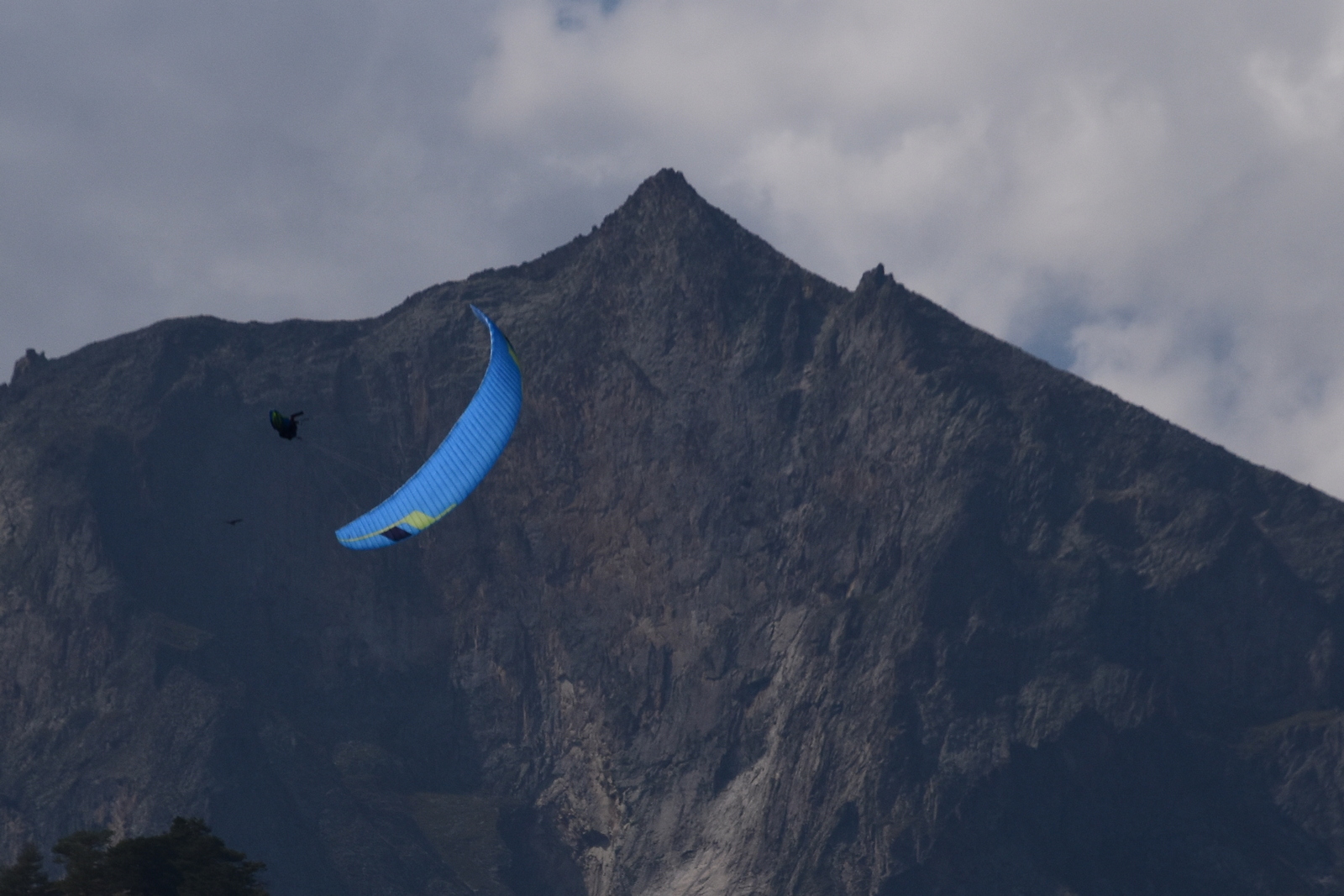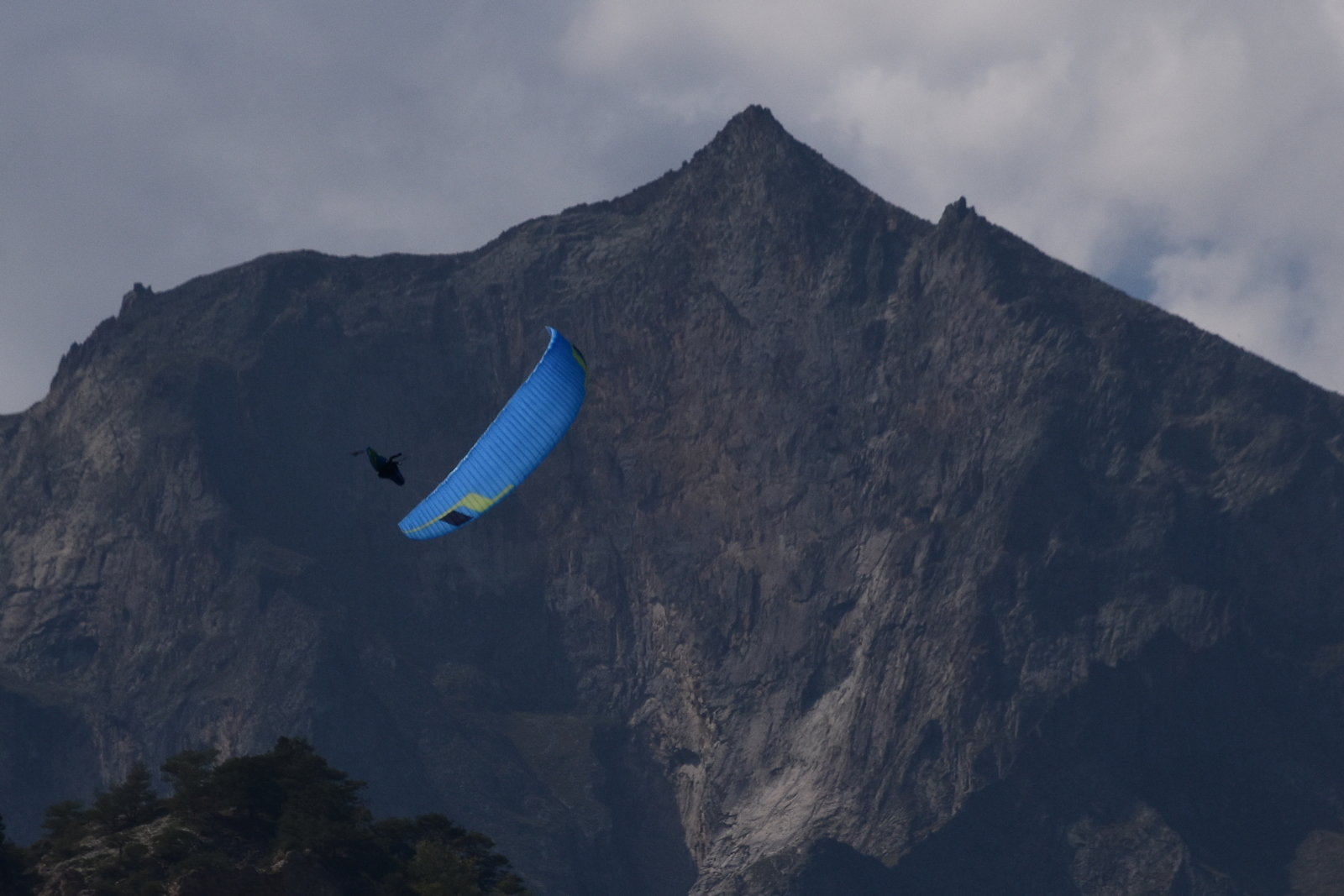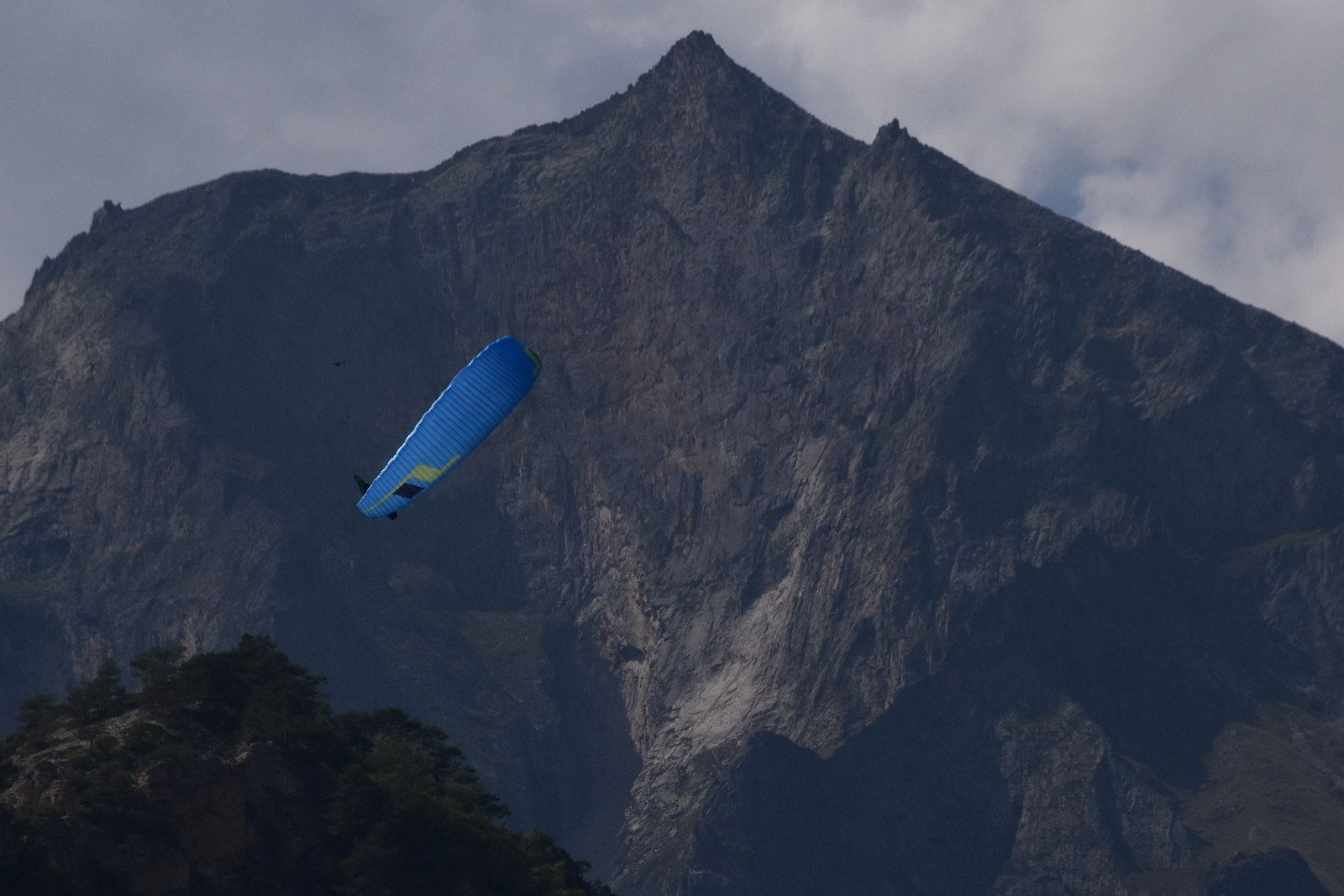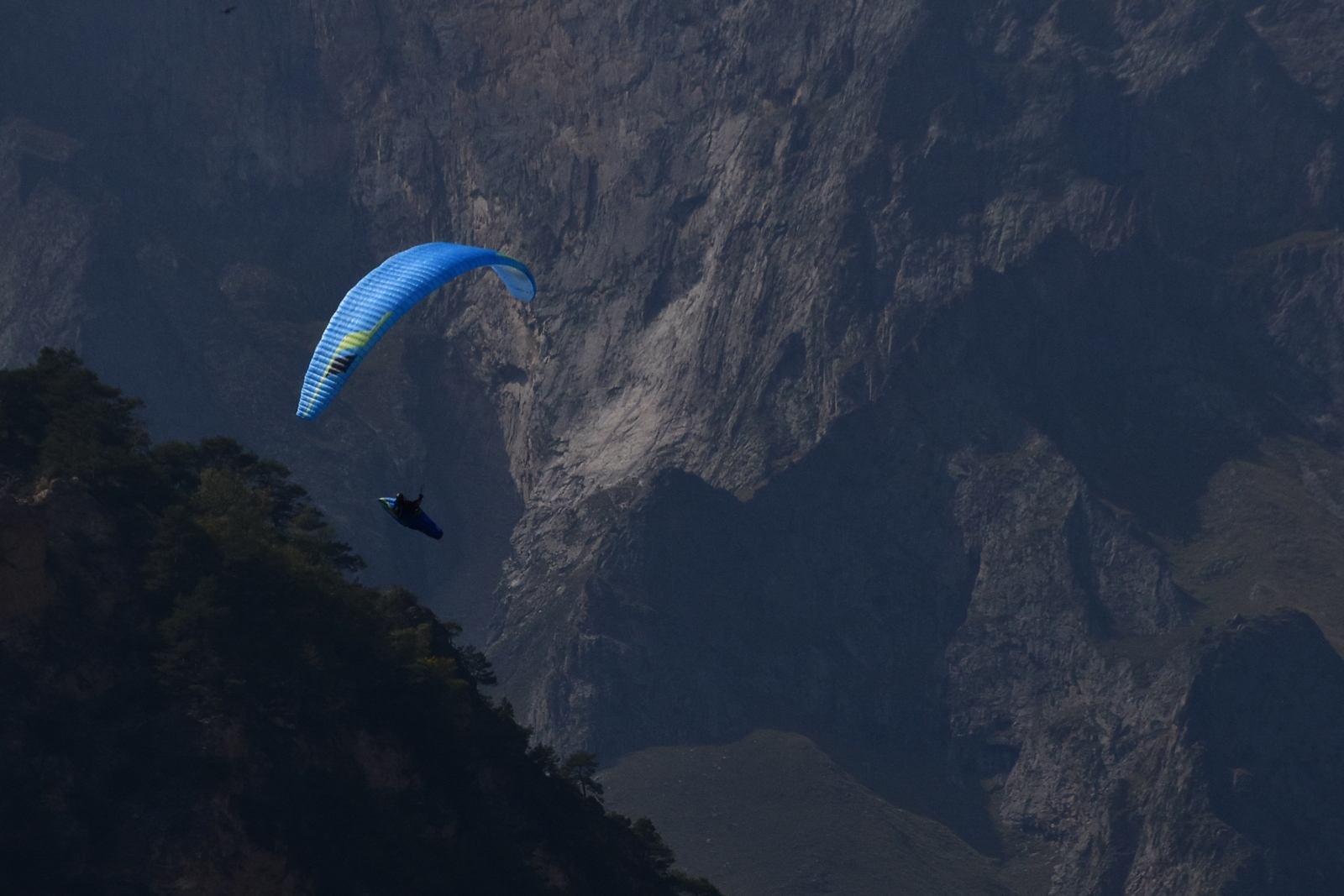Construction
Risers
Niviuk knows how to impress from the beginning! More precisely, from the ends. The "rope" ends, made of thick dyneema sling or very soft stocking tape, have been the de facto standard for lightweight equipment for years. It looks cool in photos and videos, but it's really, really inconvenient in practice — such ends get pretty tangled up, especially when the wing is not attached to the harness. But Niviuk seems to have decided to stay away from common standards. The ends on the Clymber — yay! — are made of the most common... oops, that is, not quite ordinary aramid tape in a polyester braid. The tape is very narrow (7 mm), but it's stiff enough, doesn't get tangled at all, and is generally very comfortable to use.
Everything else about these ends is about the same. Tiny, weightless, but very slippery ceramic rings where the gas pedal wire and steering slings slide in. All sorts of a-strokes and other kinematically tricky end details (and they have quite complicated kinematics, like DaVinci XChord and Ozone Zeno) are made from dyneema sling a couple of ratings smaller than you're used to. Softlinks protected with black elastic instead of connectors, empty loops with neat ribbon "flags" instead of Brummel hooks. But the gas pedal rollers are the most usual, big enough and qualitative, on ball bearings, and powerful and very, very comfortable plastic grips with Niviuk logos settled down on the back rows. On the whole, the Klymber ends look a bit toyish — but they're probably the most comfortable "mountain-lightweight-two-row" ends I've ever seen and tried. Everything works as it should, nothing gets tangled up or in the way under your hands.
Just a couple more words about the kinematics of the ends. Very non-trivial! Not only is there an external line of A-strings, but the line, on which all A-strings are hanging, is moved to the external leg. But there is a side effect of practical impossibility to fold an ordinary wingtip down on this Clymber. However, the Climber's B-ears are very effective, I'll tell you about that below.
And now, something a little less pleasant. The brake handles. Apparently, it took so much inspiration and energy from Niviuk on the ends that there wasn't any more energy left for the brakes. At first glance, the grips are adequate to the ends: the same narrow band, miniature lightweight buttons for attaching to rows... But narrowness and lightness are not about good brace handles. With those loads on the handlebars which are typical for the Clymber, its handles cut into your hands, the grip is very uncomfortable, it is hard to get your hand inside when you wear a big and warm glove. Moreover, there are no swivels. In general, for all the nivius perfectionism, the grip grips could be better. Minus one point.
Lines
The slings don't get tangled! That's the first thing you notice when working with Clymber slings in the plein air. And it's very, very comfortable! Convenient is the right word to describe the interaction with the Clymber. You put a wing on a slope and it is there and stays there even in heavy wind. You decide to straighten it out - a couple of lazy moves and it's ready for adventure. If you want to take off...
Okay, I got distracted. Let's get back to the sling. Clymber's slings don't get tangled, because the lower tiers of the sling are made of soft Edelrid, which is nice to the touch. At first glance, it looks like those straw-yellow slings don't have any impregnation — but, according to Niewick, they're very well impregnated. The slinging scheme is quite conservative at first glance. But at second glance, interesting details emerge. Two central lines of A-row are branched under the dome along the chord, which makes the fans of ancient Mantra R 10.2 to call Clymber contemptuously "quasi-two lines". But the outer slings of the A-risers do not branch along the chord! The outer B-row sling holds nearly a third of the spread: you can expect huge "b-ears" from the Clymber (and it will turn out so in the future). There is a riffing of the trailing edge, realized in the simplest possible way: no rings or eyelets, just short forks made of thin sling. Modest, rational, tasteful.
Canopy
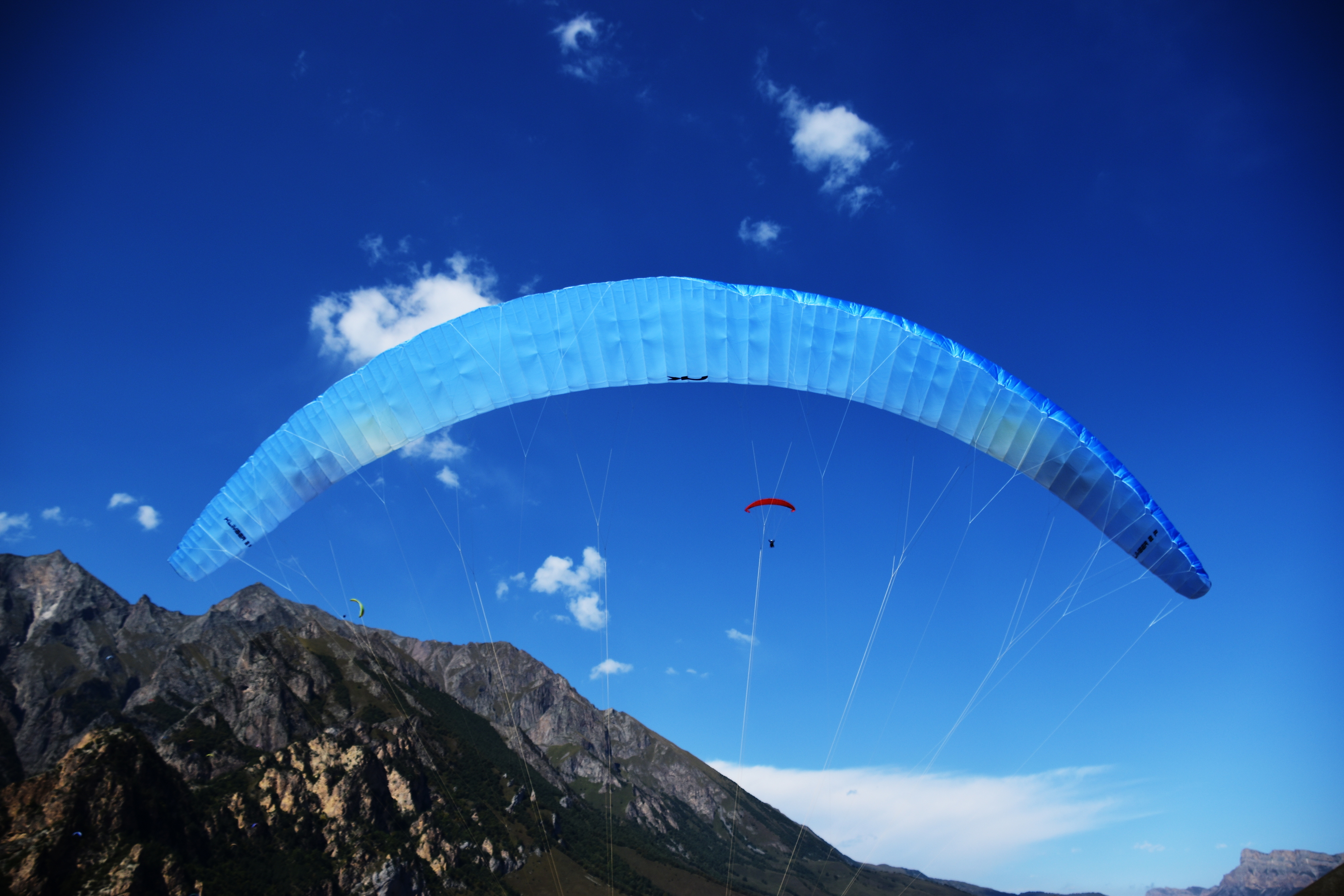
Build quality
Surface smoothness
Takeoff and groundhandling
Groundhandling
Takeoff
Flight
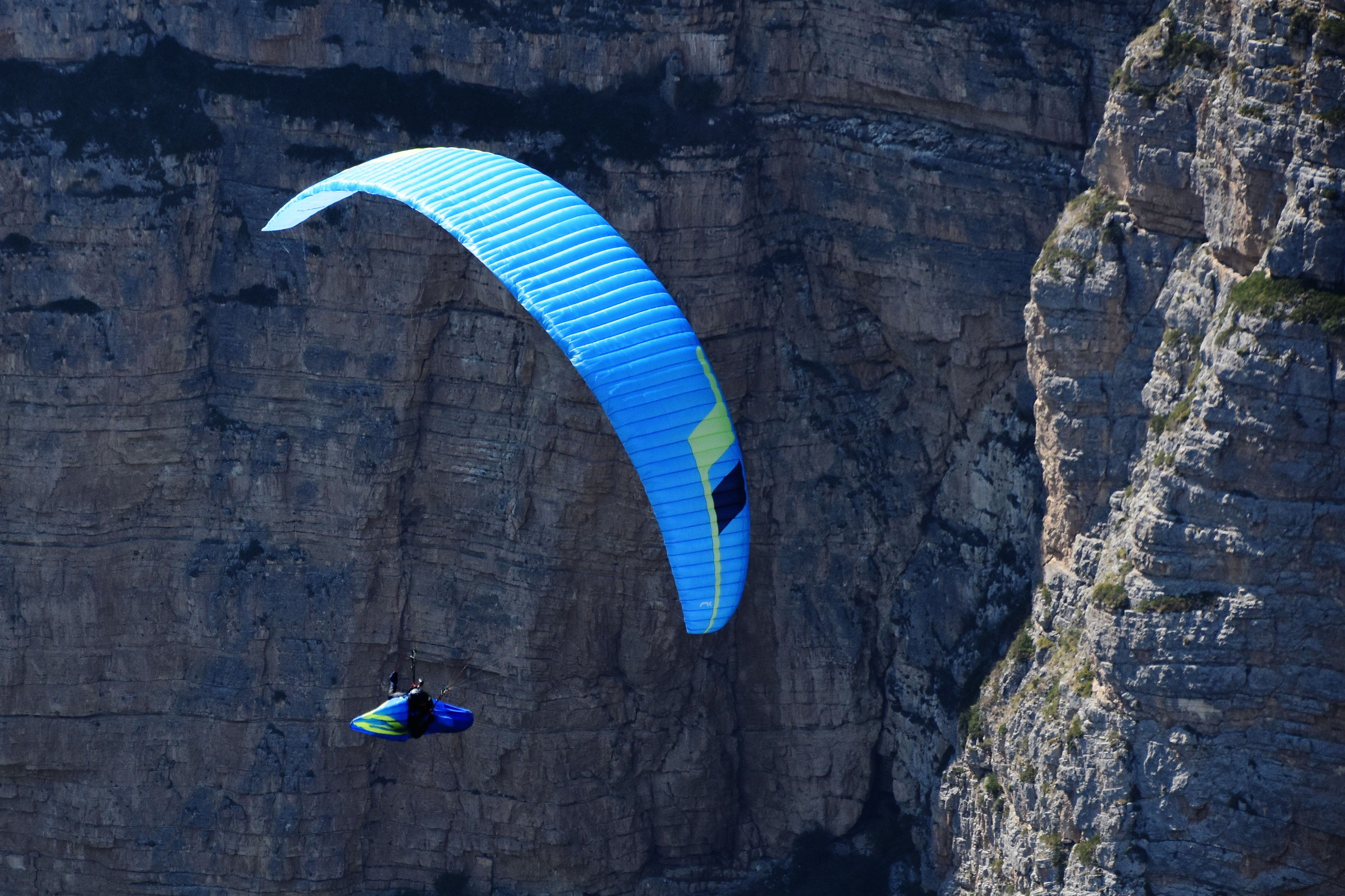
Accelerated flight
Speed gain
Speed system effort
Speed system travel
Soaring and sink rate
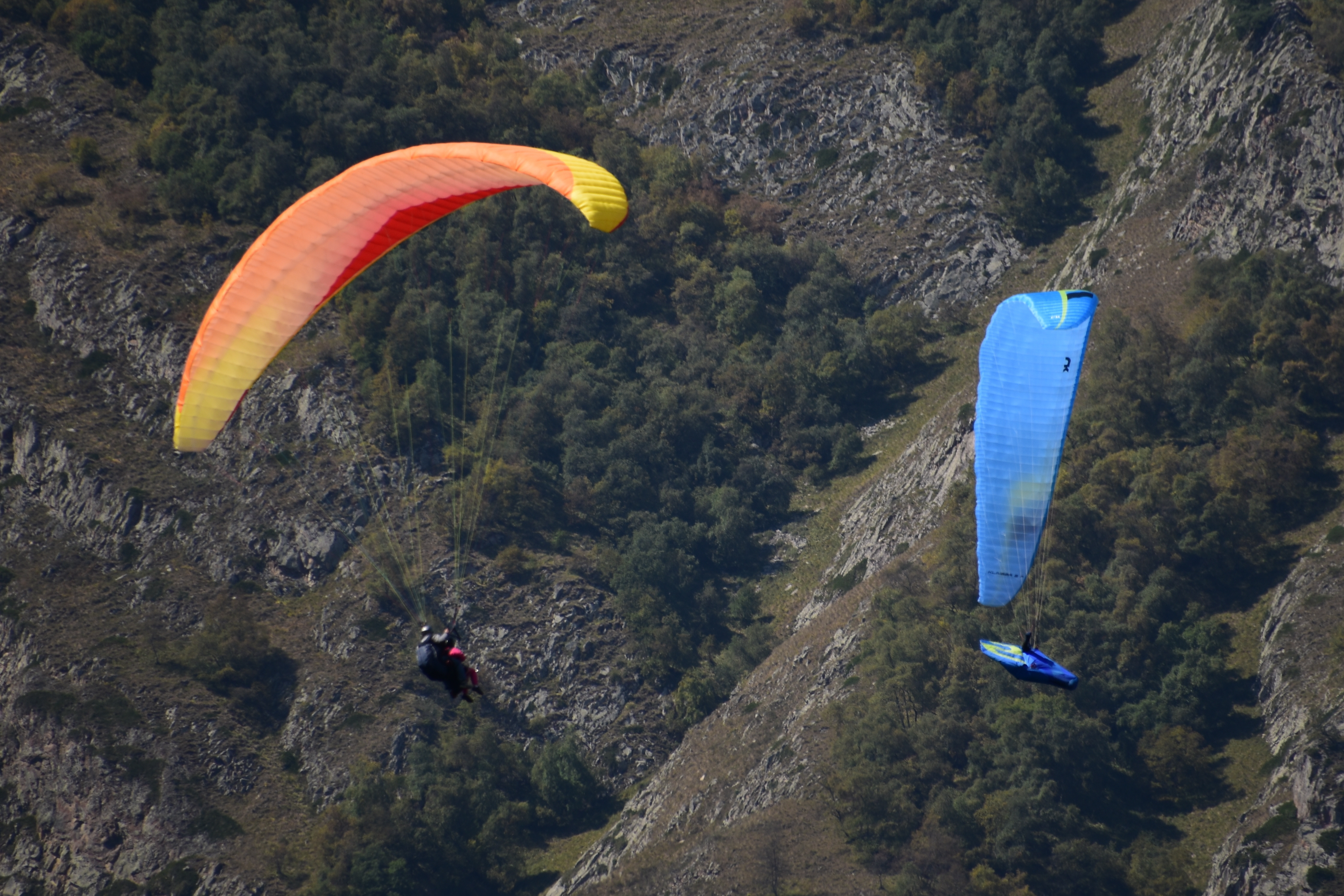
Sink rate in straight flight
Sink rate in spiral
Turn ability
Brakes efficiency
Weight shift efficiency
Rear risers control
Comfort and feedback
Comfort
Feedback
Dynamics and energy retention
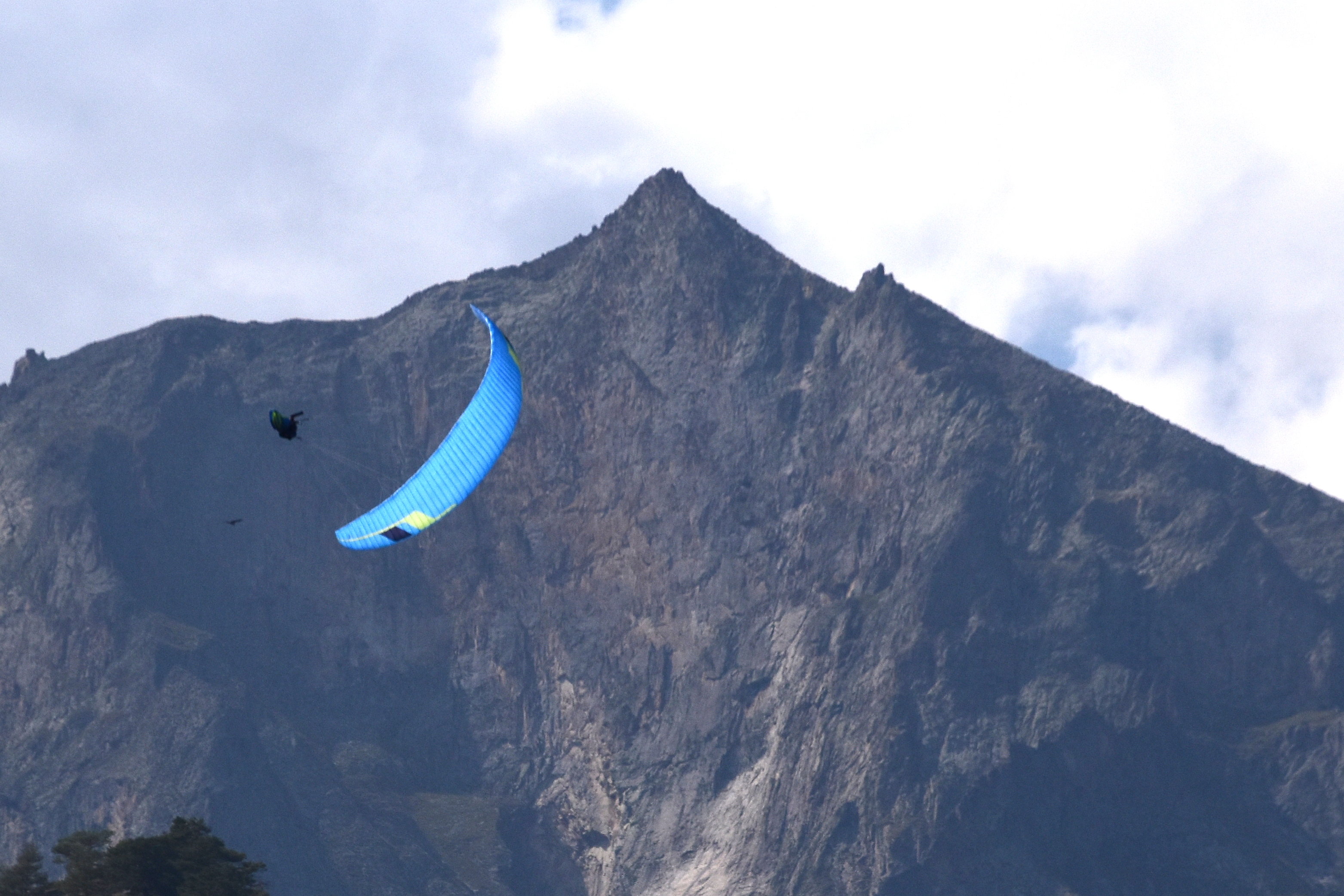
Dynamics
Energy retention
Slow flight capability
Dangerous flight regimes
Spin out of thermal spiral
Quick descent techniques
Ears
Stability
Sink rate
Deep spiral
Thanks
Copyright
- Foto: I. Tarasova, A.Tarasov
Technical data
| Flat area, sq. m. | 23 |
| Flat A.R. | 6,95 |
| Flat span, m | 12,64 |
| Projected area, sq. m. | 19,6 |
| Projected A.R. | 5,35 |
| Projected span, m | 12,64 |
| Cells, total | 64 |
| Cells, closed | 6 |
| Cord max, m | 2,29 |
| Lines length, m | 206 |
| Lines scheme | A2A'2B3 |
| Takeoff weight, kg | 88-105 |
| Glider weight, kg | 2,9 |
| Size | 23 |
Materials and components
| Upper surface, leading edge | Porcher | 70000 E3H |
| Upper surface except leading edge | Porcher | 70000 E3H |
| Bottom surface | Dominico | N10 |
| Ribs, supported | Porcher | 70000 E91 |
| Ribs, unsupported | Porcher | 70000 E91 |
| Diagonal ribs | Porcher | 70000 E91 |
| Lines, upper cascades | Liros | DC35 |
| Lines, middle cascades | Edelrid | 8000U |
| Lines, main (lower) cascades | Edelrid | 8000U |
| Lines, brakes | Edelrid | Tarax 200 |
| Risers, webbing | Cousin | CSAR70 |
| Risers, pulleys | Ronstan | RF25109 |
Links
Klimber 2 P at niviuk.comKlimber 2 P at niviuk-rf.ru

